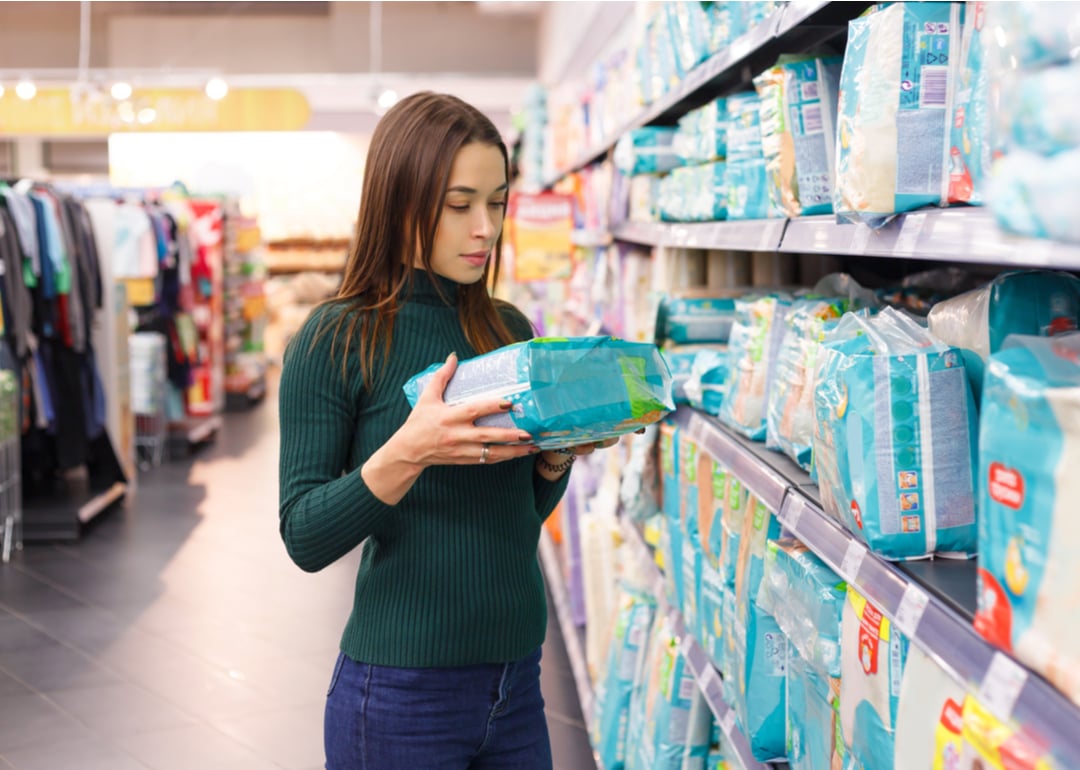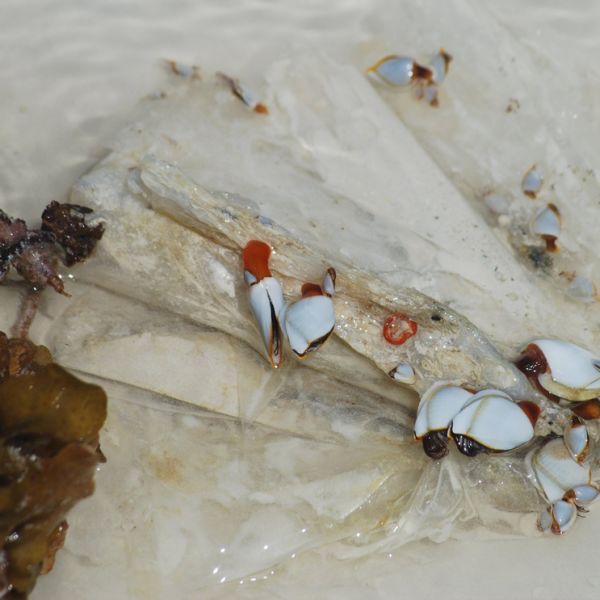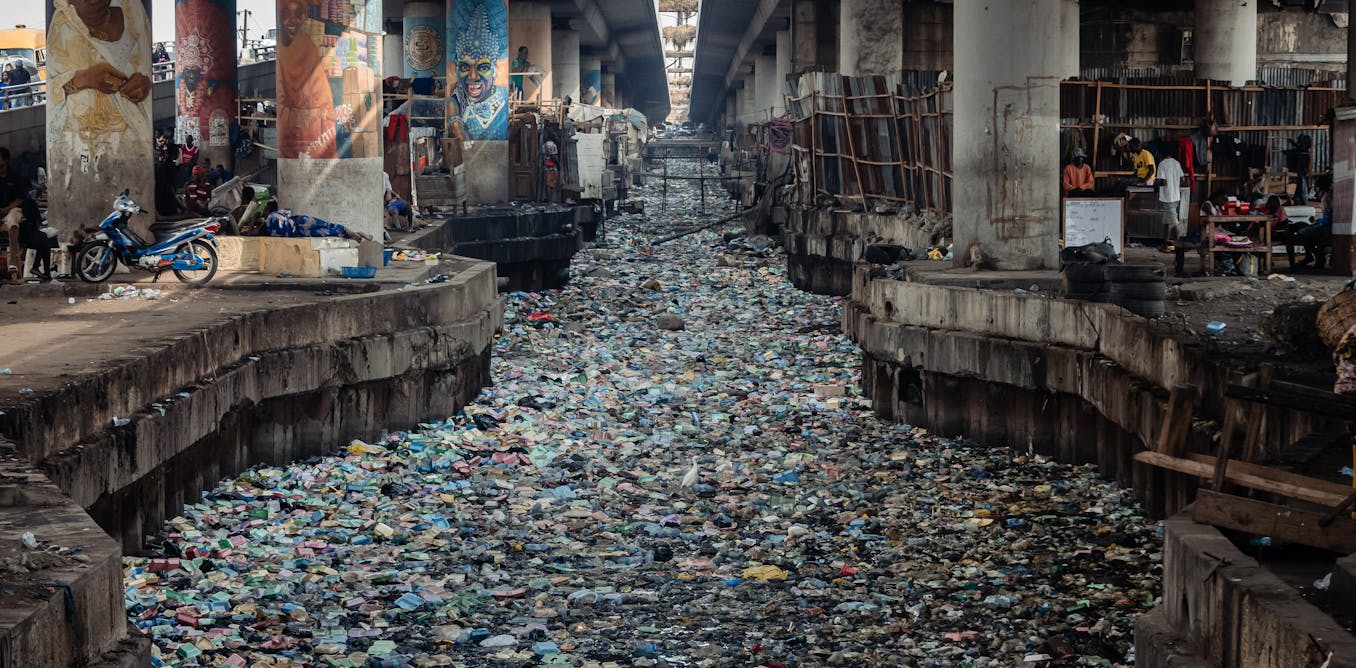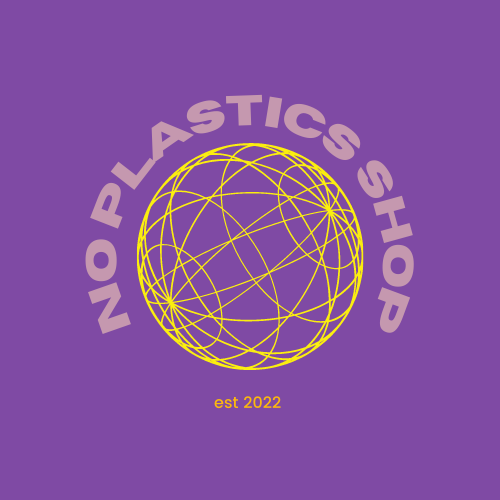Best Disposable Eco Diapers: No More Plastic On Our Baby's Bums Or Landfills
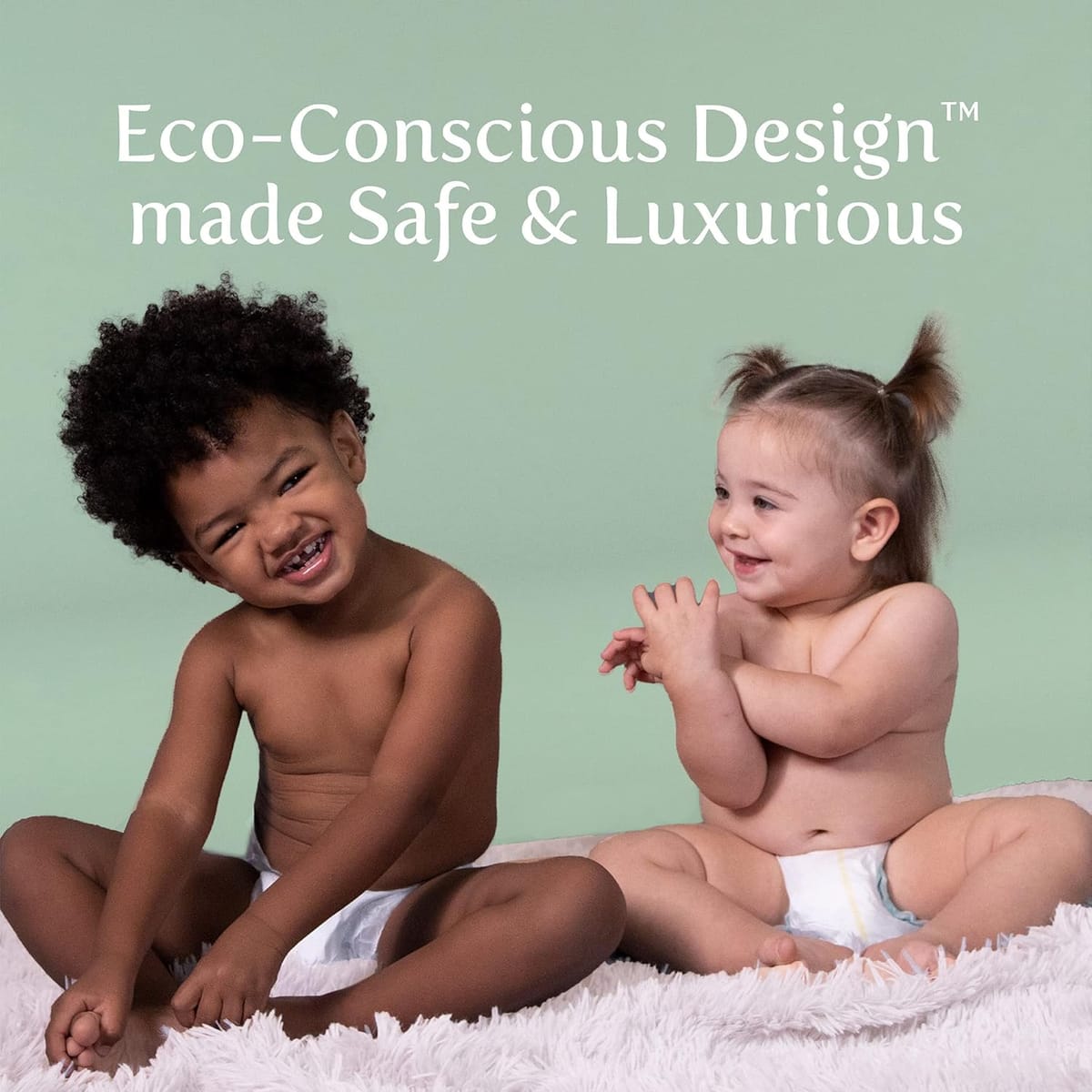
Disposable Diapers first came into the world somewhere between 1930 and 1950, developed around the same time, in both Europe and North America. The history in a fascinating one. Prior to that, clothe diapers were of course the norm, but few realized that even traditional cloth diapers, as we're familiar with today, were not actually around until sometime in the 1800s, with the emergence of cheaply manufactured cotton.
For Plastic Free Adult Incontinence Products Go Here
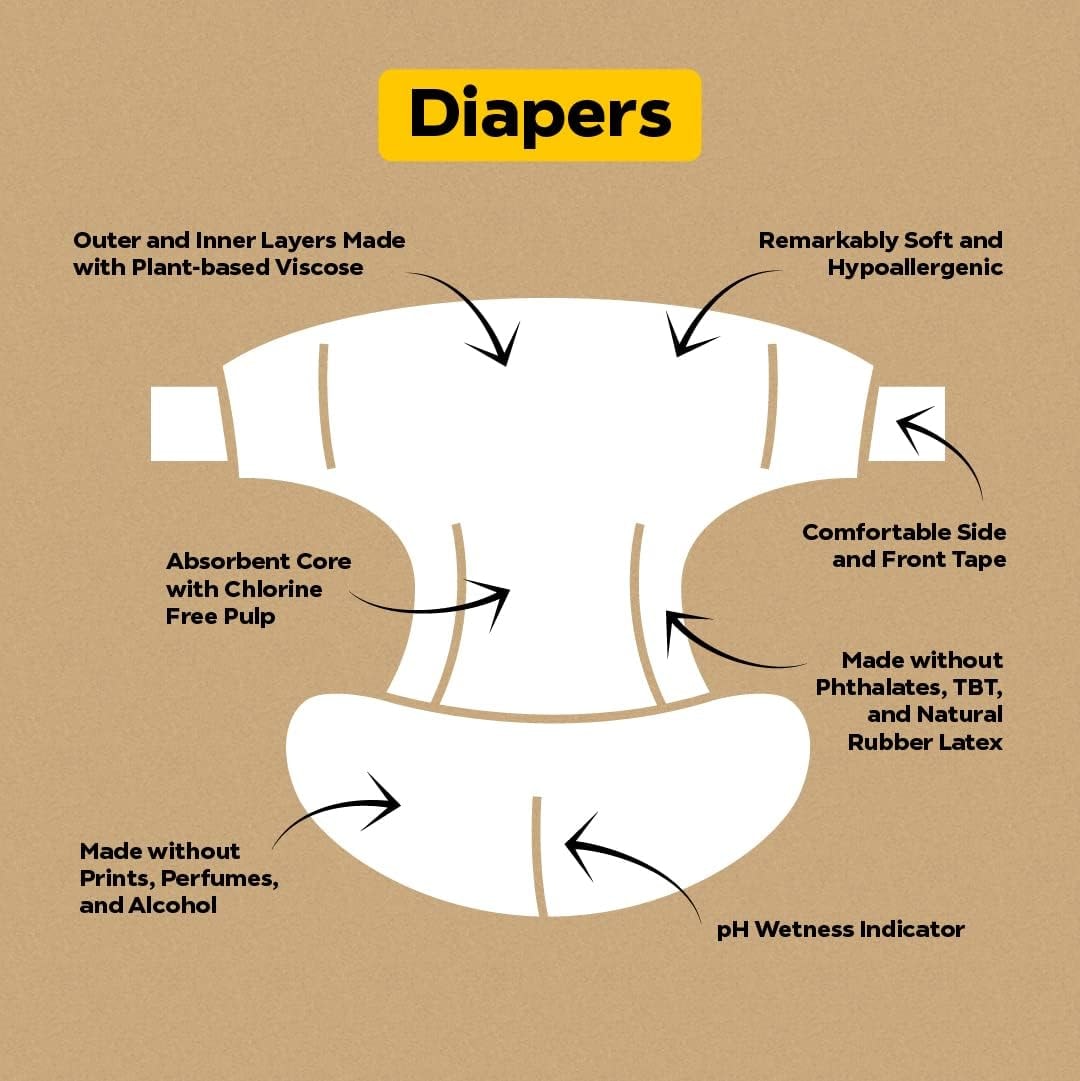
Dyper. plant based diapers, all sizes to choose from, natural diapers
The Problem with Traditional Disposable Diapers
Conventional diapers, like pampers, have been a staple in many households for decades, but they come with a significant environmental cost. The production and disposal of these diapers contribute to greenhouse gas emissions, water pollution, and waste management issues. Here are some alarming facts about traditional disposable diapers:
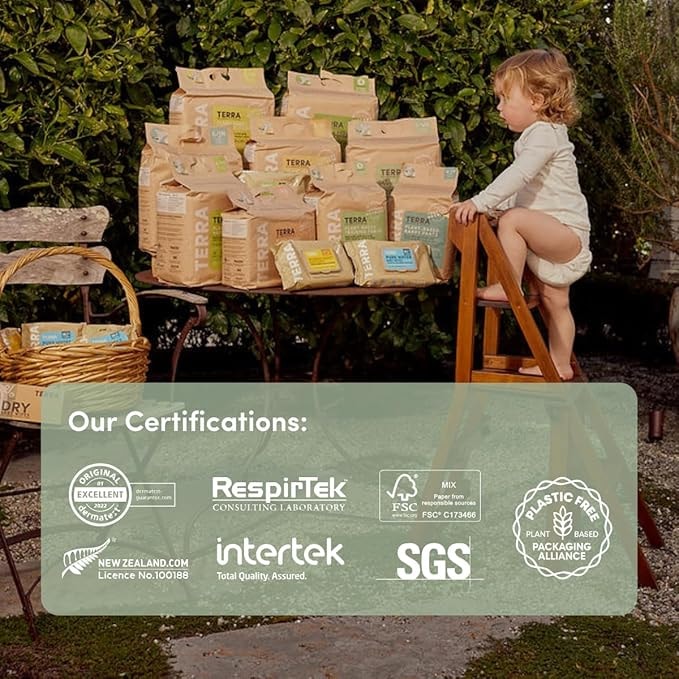
Terra Store. brand states only 85% plant based materials
- Disposable diapers make up around 2% of landfill waste in the U.S.
- The US alone throws away 20 billion disposable diapers every year, resulting in 3.5 million tons of waste.
- Disposable diapers take around 500 years to decompose, making them a significant contributor to long-term waste.
- Harmful chemicals in disposable diapers can enter nearby groundwater, posing a risk to human health and the environment.
- Disposable diapers can cost around $2,000 until a baby is potty trained, making them a significant expense for families.
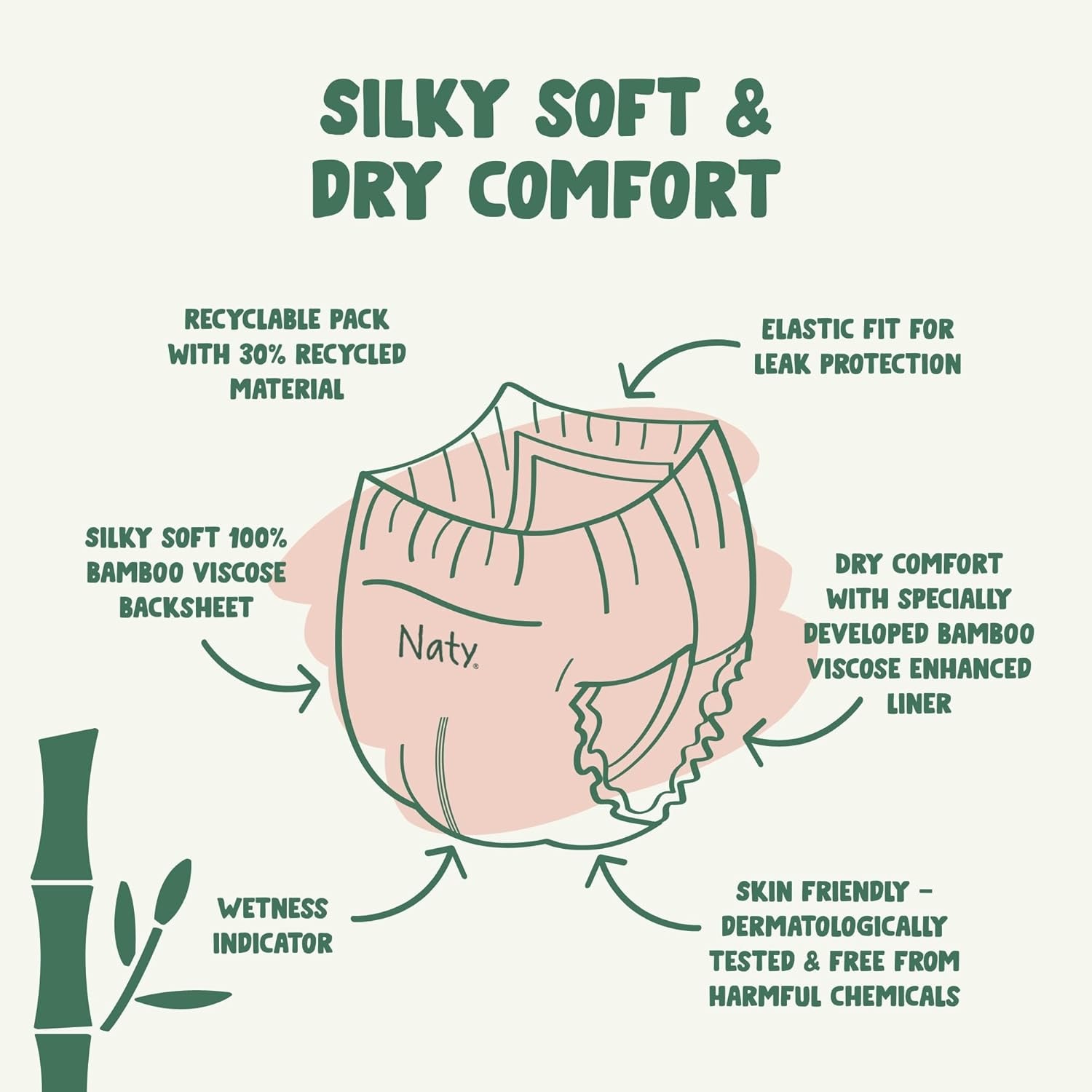
Eco by Naty Training Pants brand makes good use of recycled materials
These statistics paint a clear picture of the environmental and financial impact of traditional disposable diapers. It’s time to consider more sustainable options that are kinder to our planet and our wallets.
Disposable Bio Diapers
Before then, the history of swaddling practices is even more interesting, and as varied as we can imagine. But here we are today, landfills bulging with a swell of ever increasing piles of disposable diapers, contributing significantly to greenhouse gas emissions, along with those originals, first deposited in the garbage heap back in the 1930s or so.
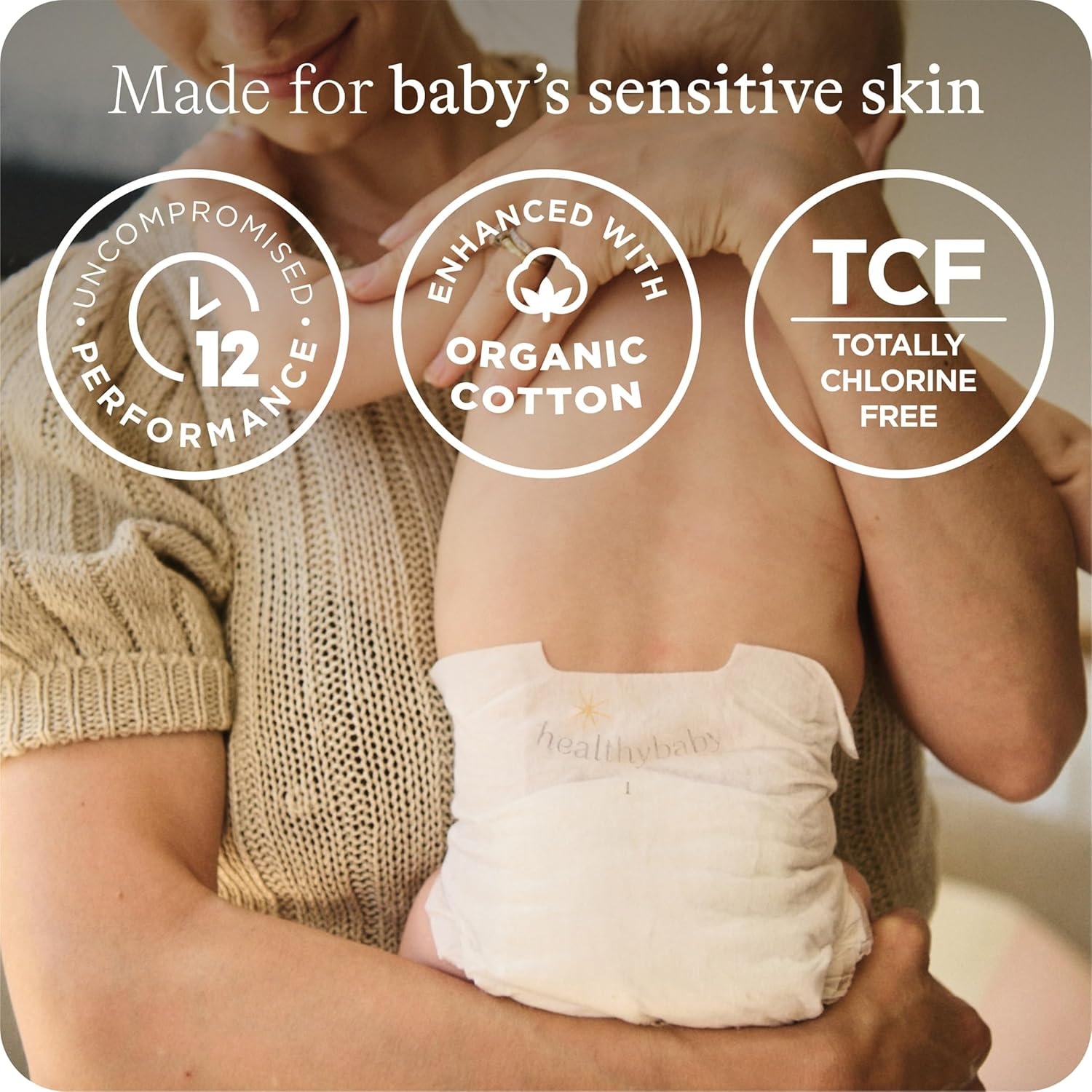
HealthyBaby. certified plant based materials, compostable diapers
Today's plastic conventional will still be around, hundreds of years from now. Good thing we can now make the shift to an eco-friendly disposable. Not a pleasant thought.
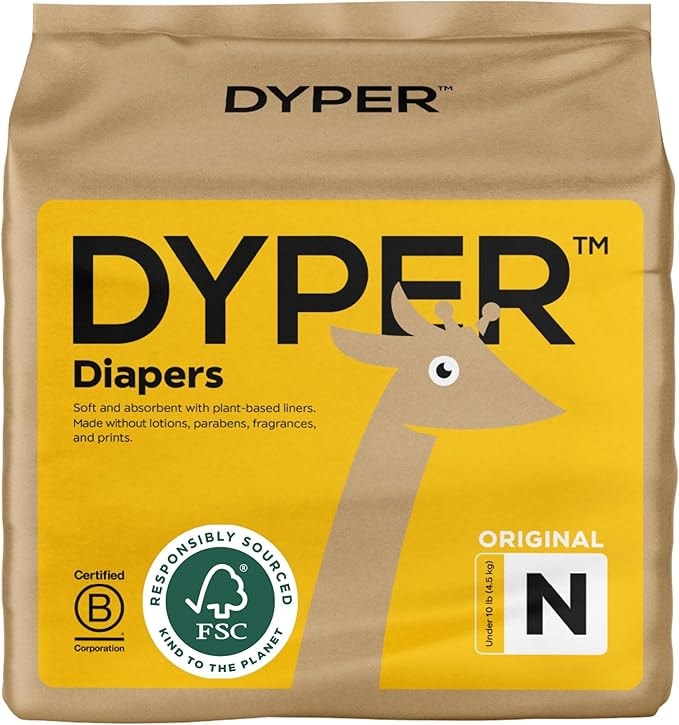
Dyper makes among some of the best disposable bio-diapers currently on the market . 100% biodegradable bamboo diapers. This means that you can do your part for the planet without sacrificing softness, absorbency, or reliability. Dyper also offers a monthly subscription plan so you can get your diapers delivered right to your door with no hassle. Plus, they offer an eco-friendly diaper pail option so you don’t have to worry about those pesky germs and smells coming back around.
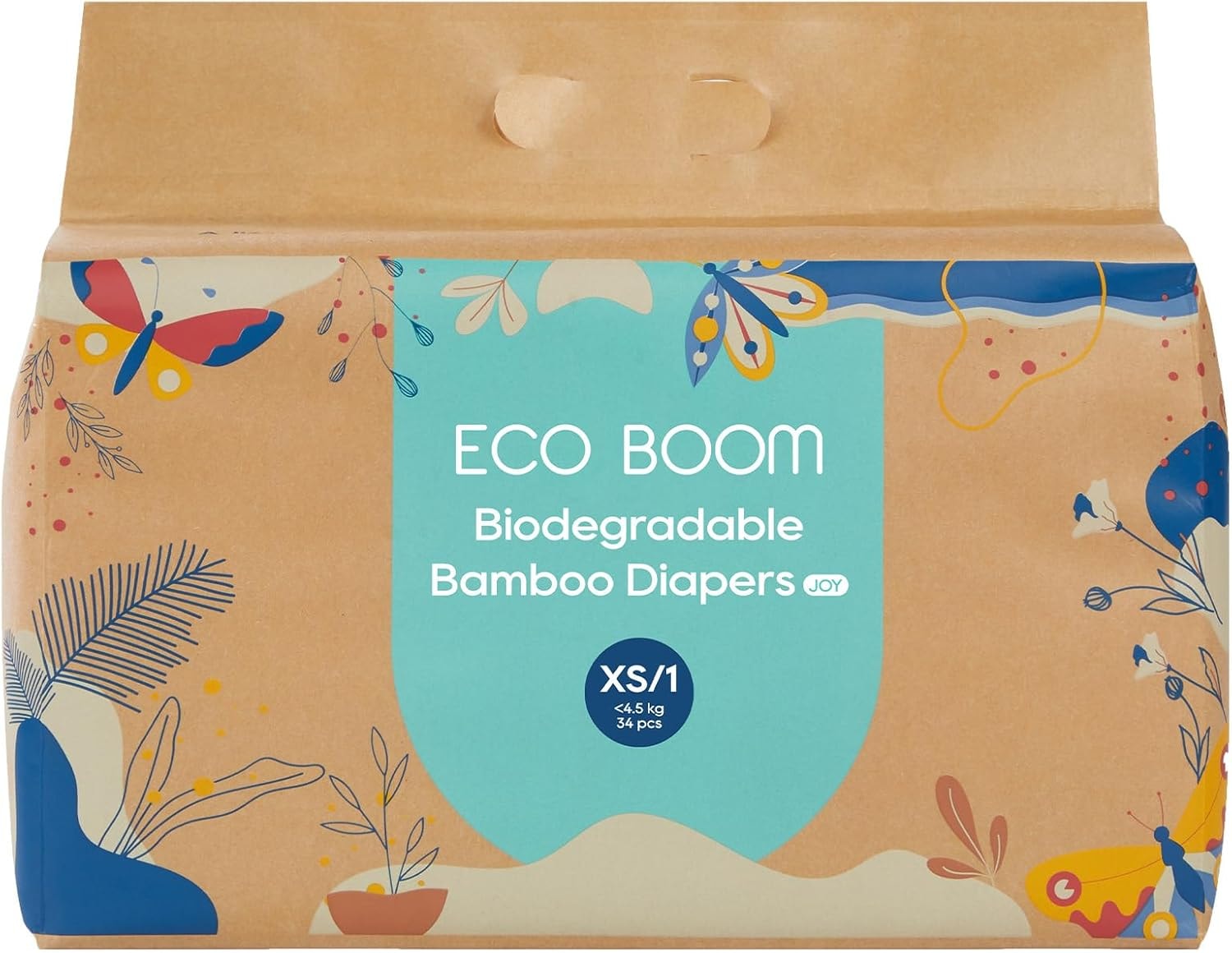
Eco Boom. biodegradable baby nappies, all sizes, sustainable diaper
Eco Friendly Diapers
It’s true, that today disposable baby diapers occupy anywhere from 7 to 40% of land fill space. That’s a lot of diapers! Compostable diapers are an excellent alternative that can significantly reduce this waste. But the good news is we have choices that are better for our babies’ bums sensitive skin and better for our planet. Let’s have a look at the most eco-friendly disposables available today.
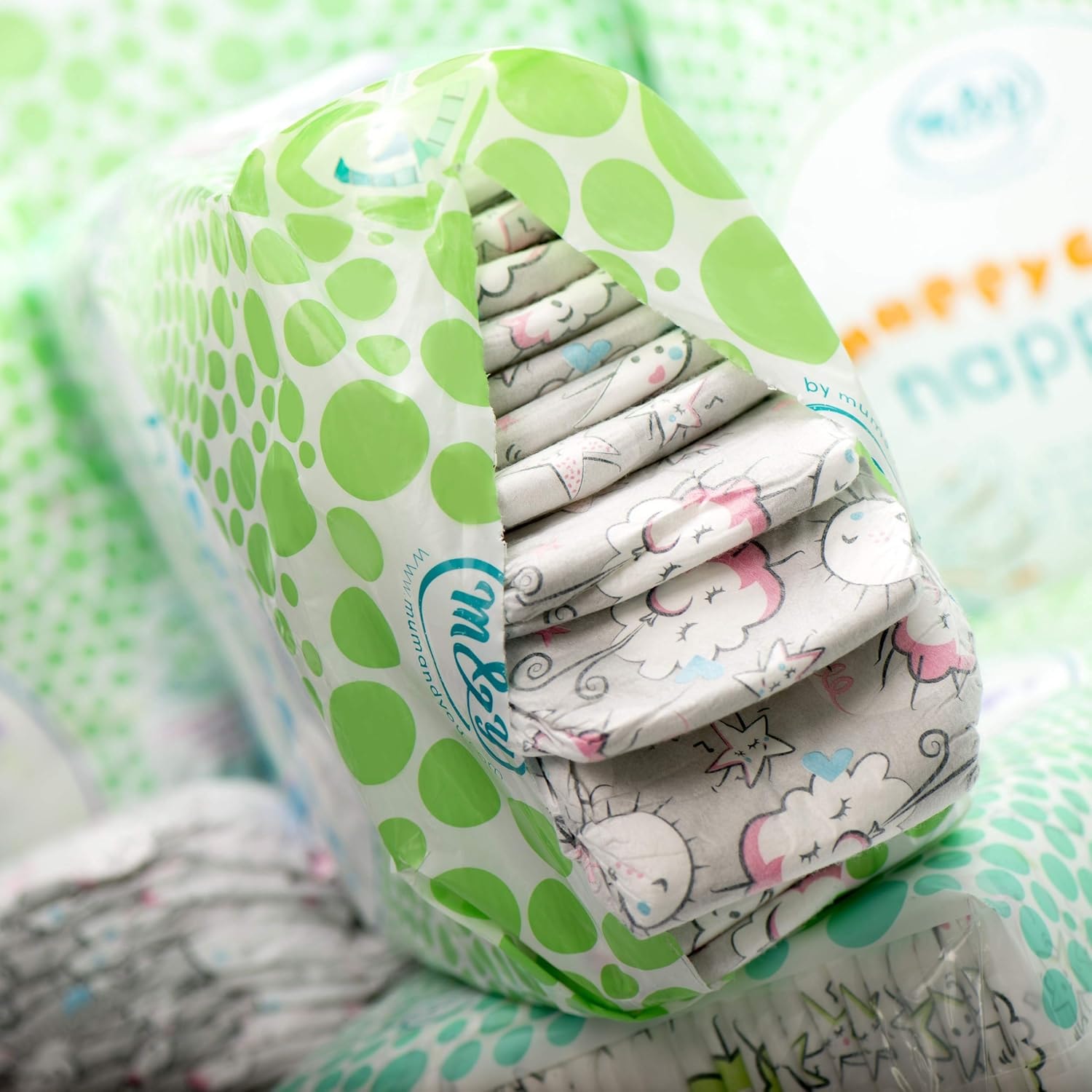
Eco Friendly Disposable Diapers
Mum and You Nappychat** all cotton disposable diapers** environmentally friendly diapers
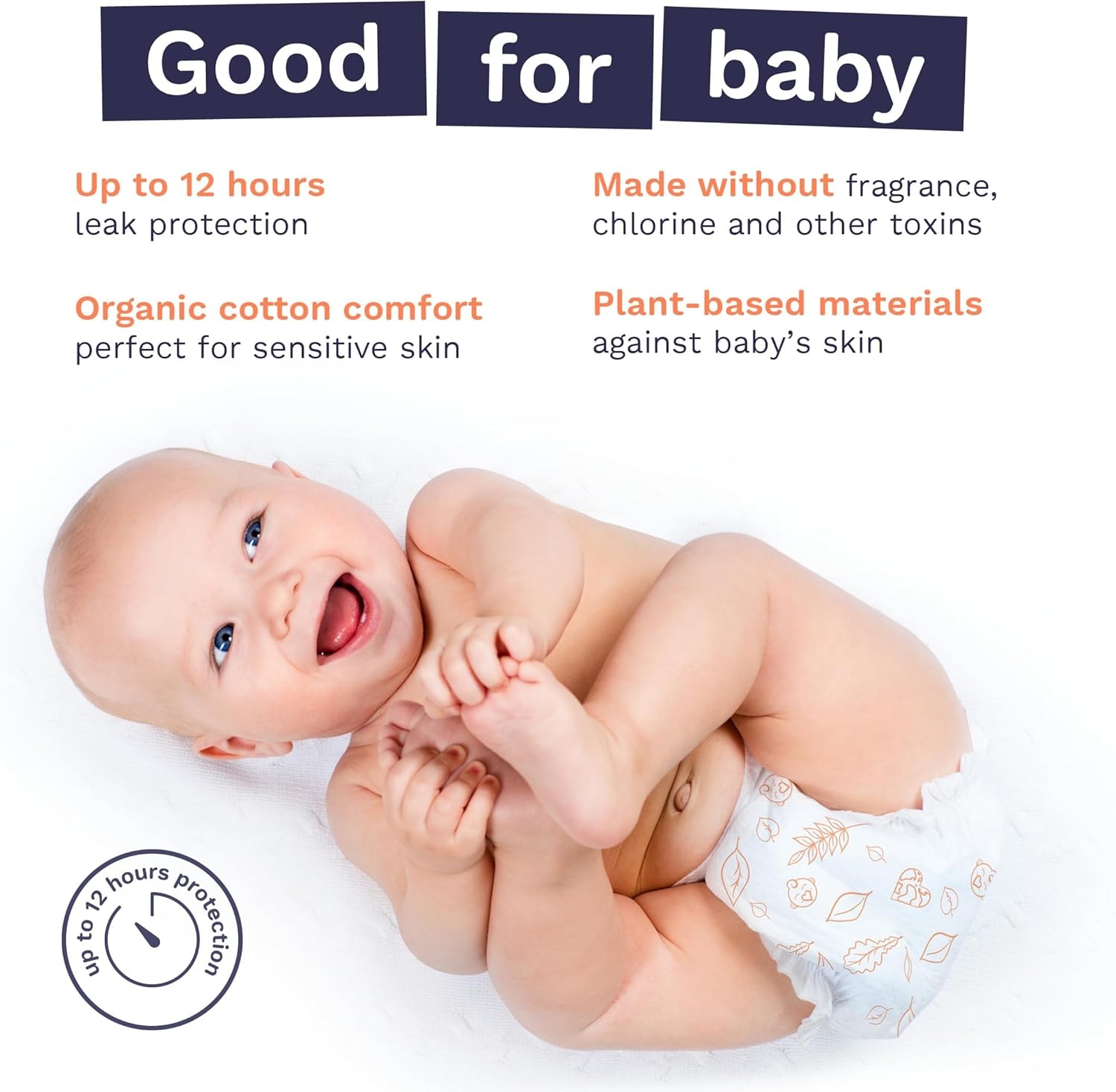
Pura Organic Cotton, leak proof, made in EU to sustainable standards
Eco by Naty, a company first started in Sweden, makes plastic free eco-friendly diapers too! Buying biodegradable diapers is always better for baby’s skin. From newborn to potty training Amazon has a disposable biodegradable option for you.

Eco by Naty. 100% plant based disposable diapers
Some brands may NOT be among the best eco-friendly diapers. Some made with materials NOT completely biodegradable. ATTITUDE at only 50% while Nest may be plant based diapers but with no percentage given. Perhaps just a labeling problem but we don’t know.
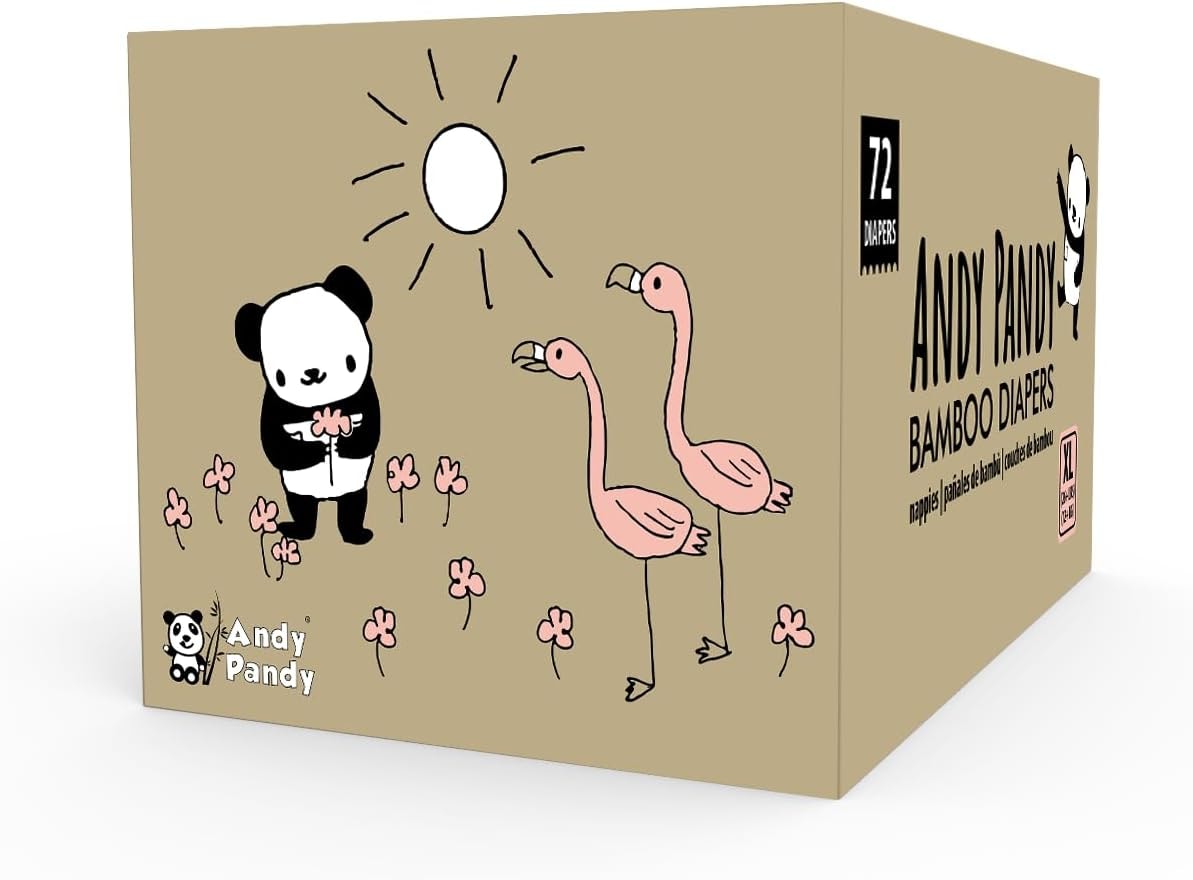
Andy Pandy 100% viscose bamboo diapers, chlorine free
It’s hard for some companies to get around the use of some percentage of plastic for liners and elastic. But the more we can push diaper brands to do so by our choices, and to be clear about their material, the closer we are to a plastic free planet. Natural rubbers and other plant resins are obvious alternatives.
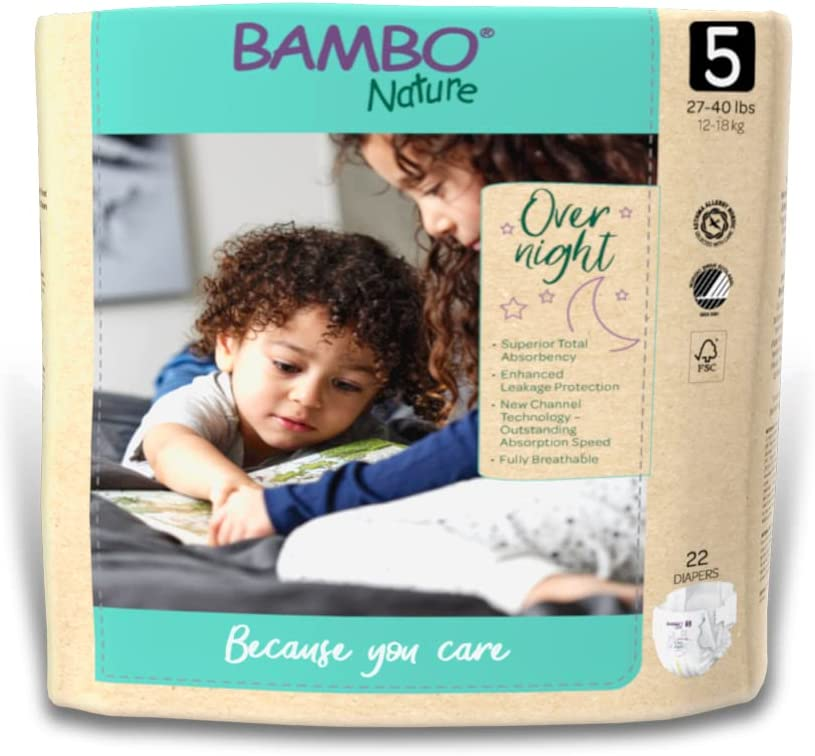
Bamboo Nature makes Jumbo size overnight bamboo diaper, in addition to other sizes.
Counted among the best biodegradable diapers available are those sourced from bamboo. Chorine free viscous that is hygienic and soft. Although Joonya, a brand of diaper designed in Australia but made in Denmark makes a non toxic, eco-friendly diaper out of organic cotton. These chlorine free diapers are a great choice for parents looking for safer options.
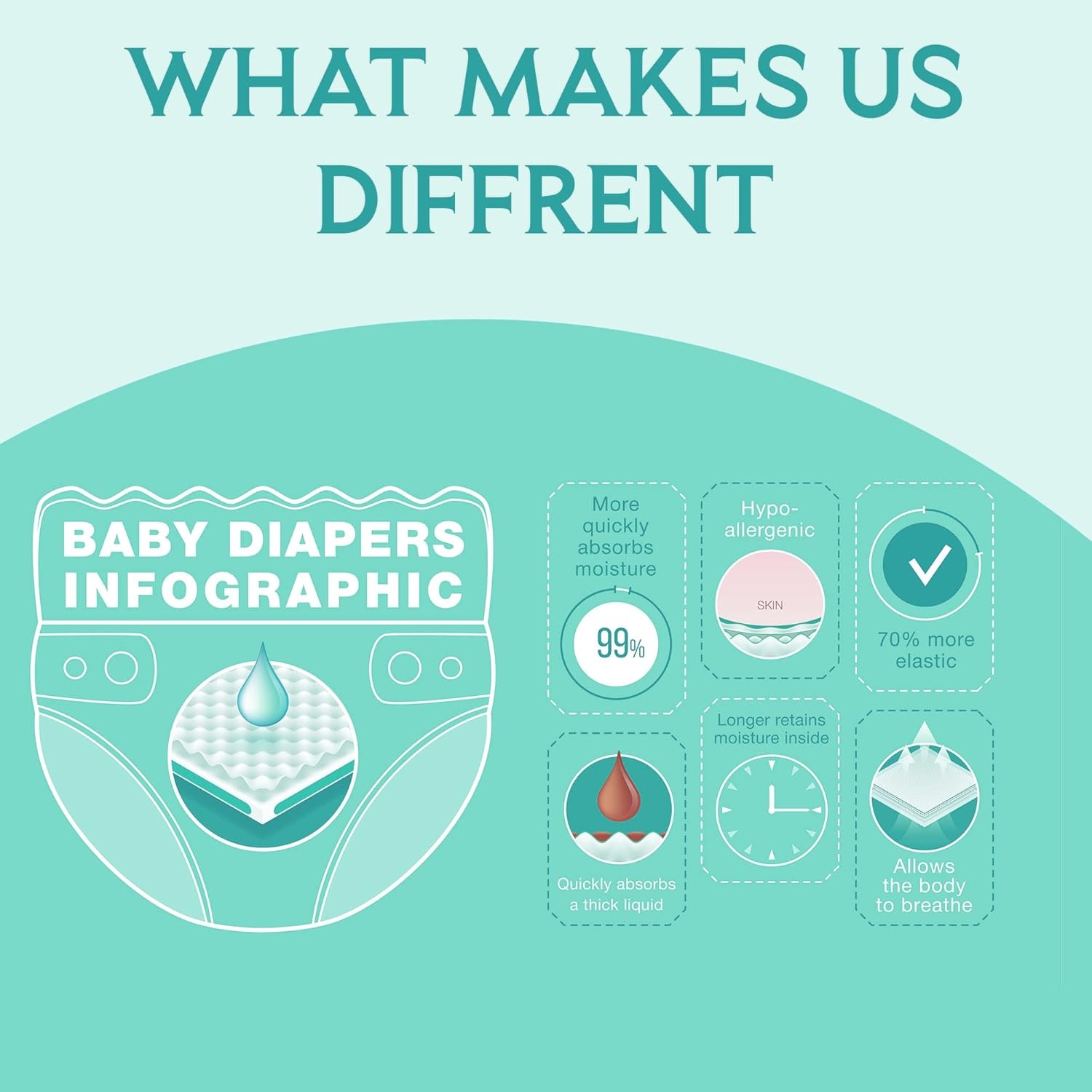
Soho Jumbo Organic Cotton bamboo top sheet, absorbent core
Better Swaddling For Baby's Skin
Soho makes an organic cotton and bamboo extract however the elastic component unless a biodegradable elastic we may assume to be plastic. Diaper manufacturers like these have managed to produce eco-friendly and hypoallergenic diapers entirely from sustainable plant material.
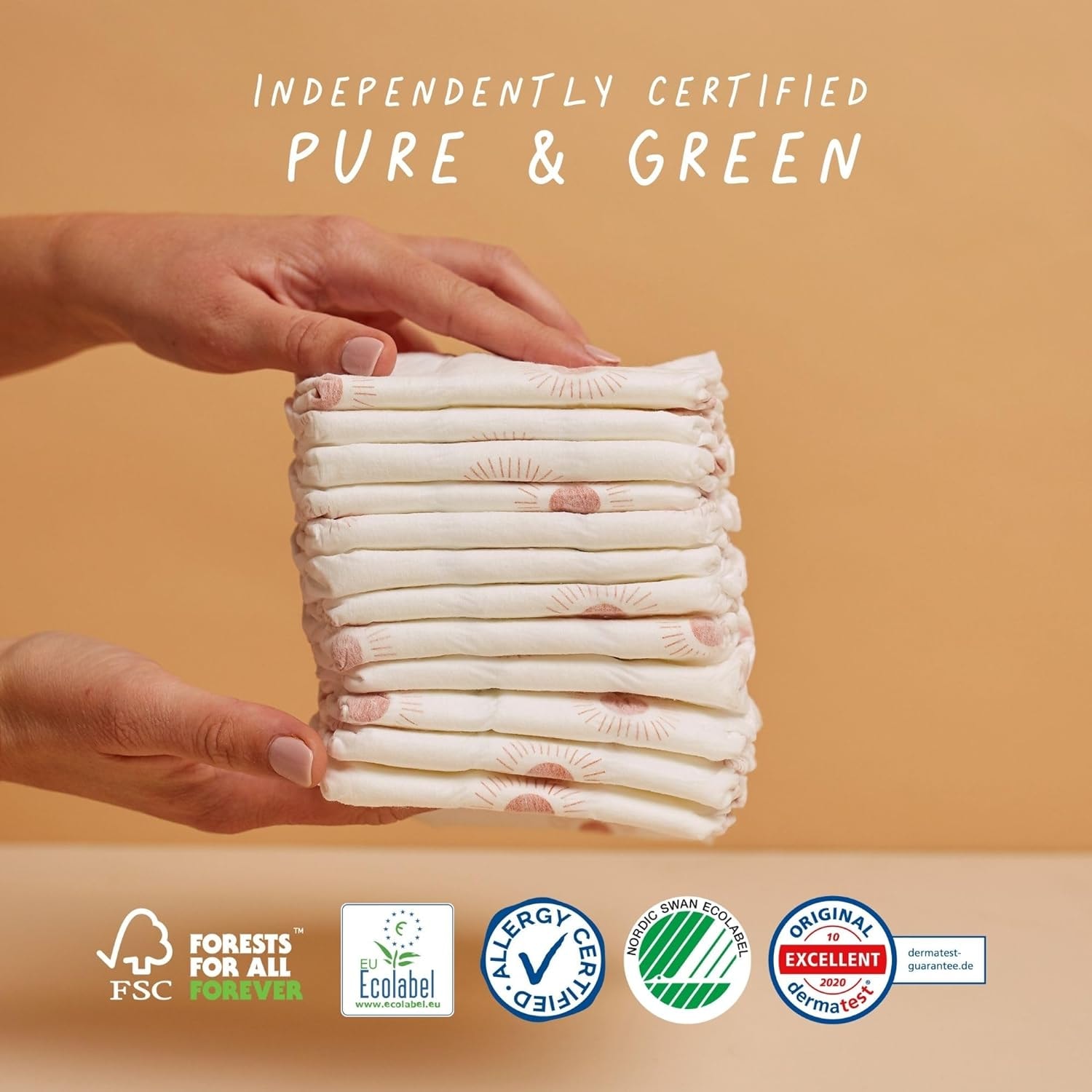
Joonya. ultra thin overnight eco friendly baby diapers
Joonya brand also make eco friendly pull up pants for potty training, absorbent core.
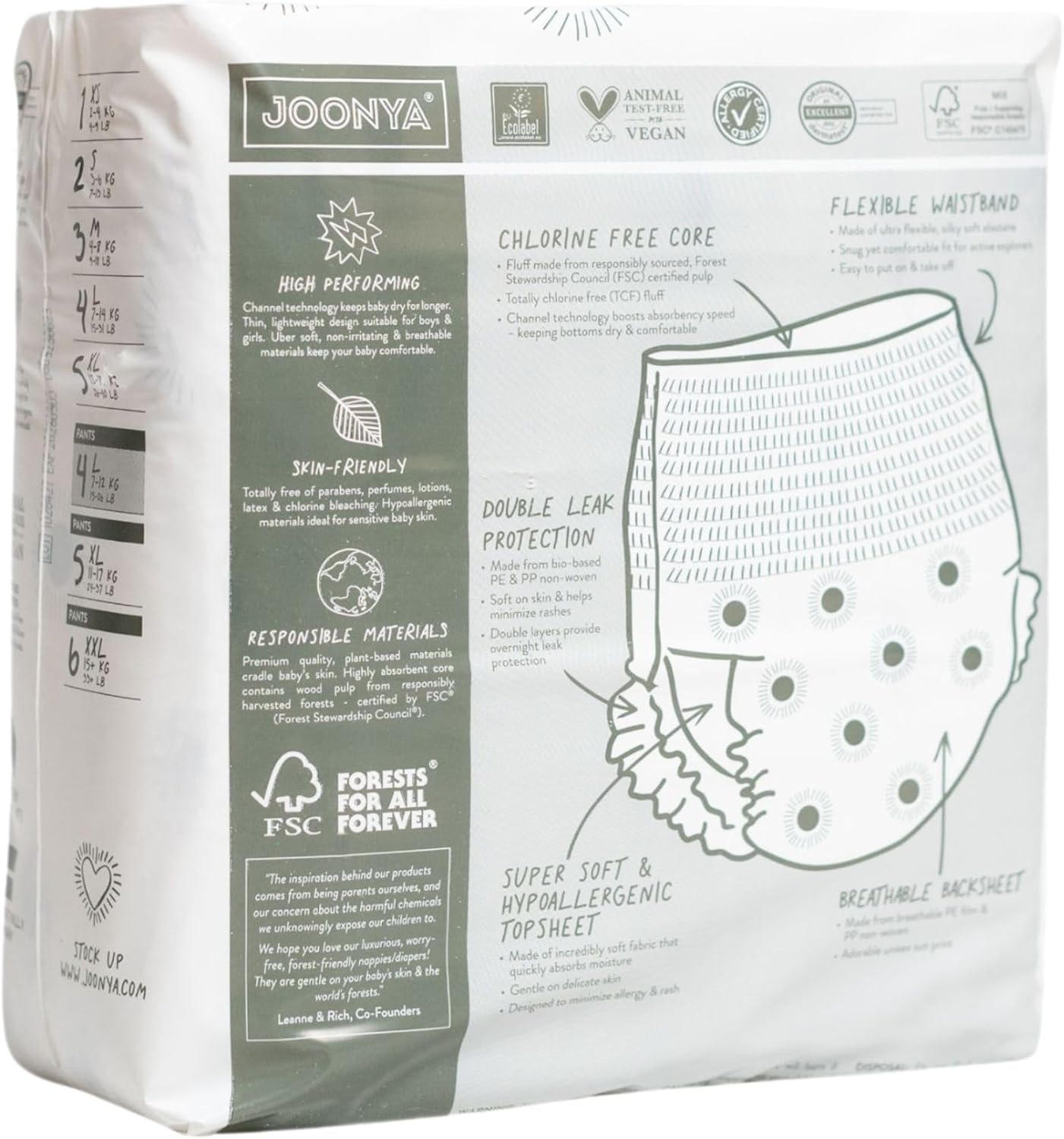
Believe and Earth Eden are included in brands making great strides, sustainable, chlorine free, fragrance, free hypoallergenic for a baby’s sensitive skin. Totally chlorine free and counted among the most eco-friendly diapers on the market.
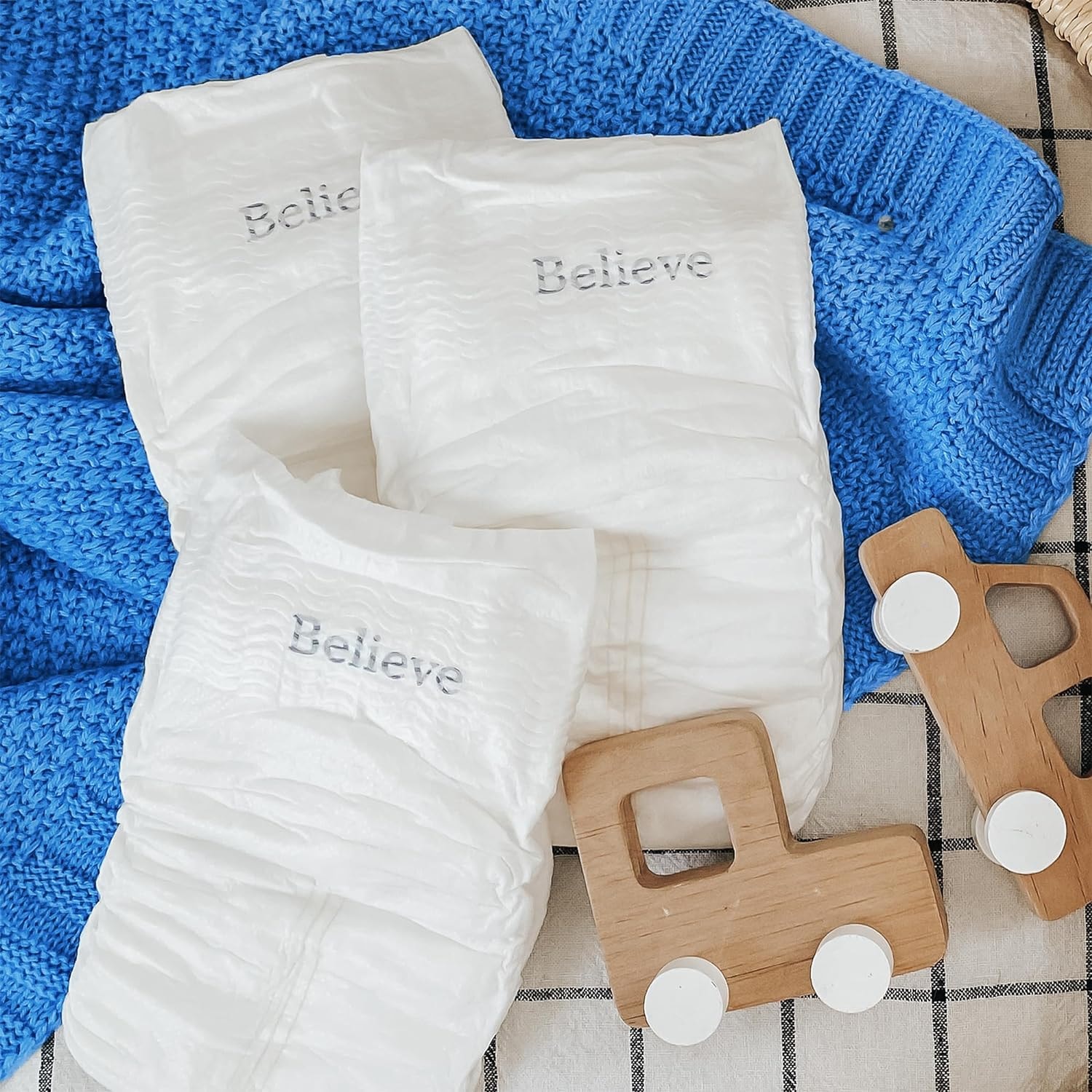
Believe. 100% bamboo viscose, biodgradable diapers

Earth & Eden** hypoalergenic eco conscious baby diapers** natural diapers
Seventh Generation Is Also A Good Choice.The Seventh Generation Brand has been around for over 30 years now, and they make great environmentally friendly disposable diapers as well as other eco-friendly products.
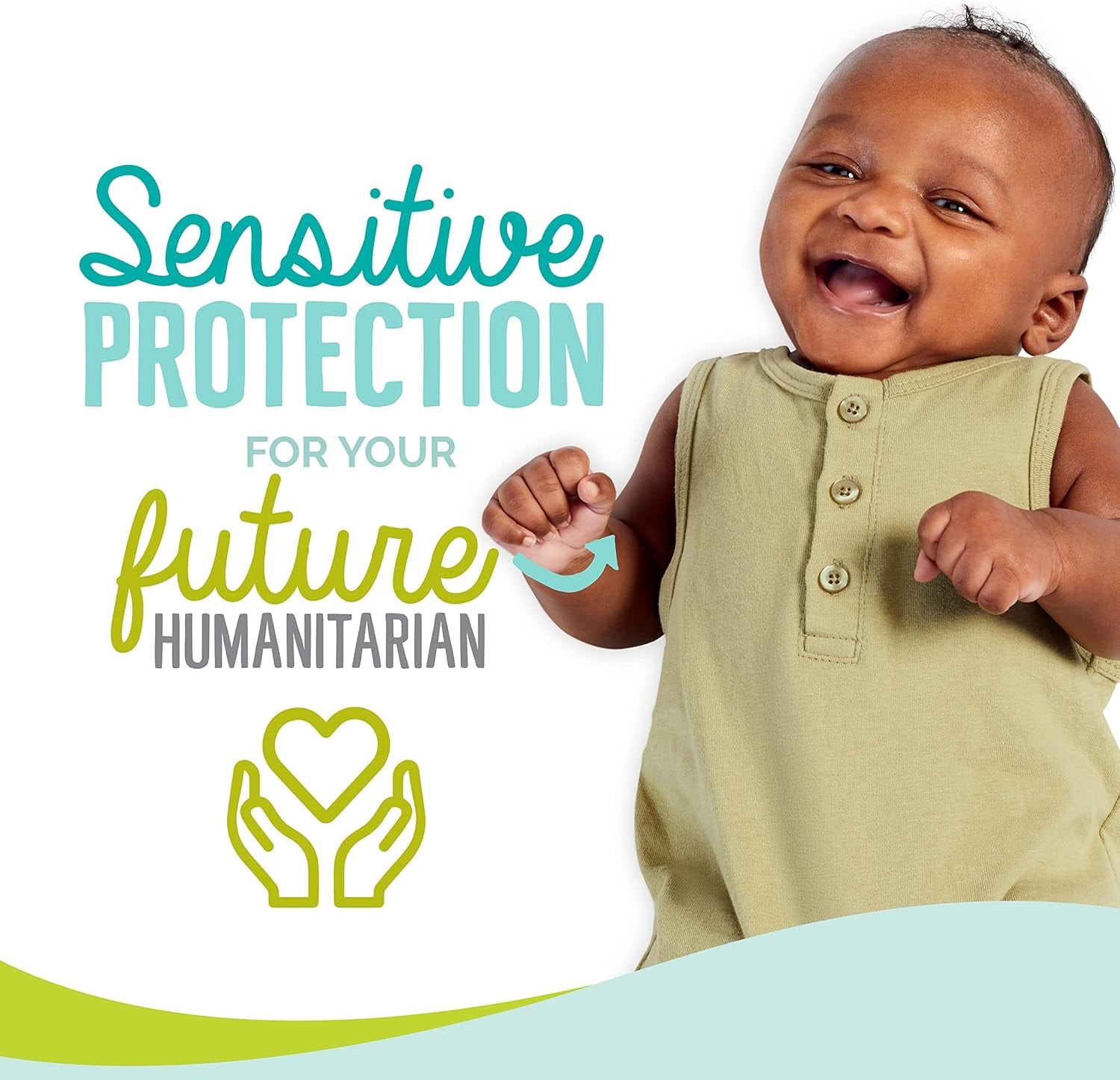
Seventh Generation** plant based materials** sustainable diaper
Their diapers are made with sustainably sourced materials like fluff pulp, wood pulp, and polymers that are designed to be gentle on sensitive baby skin while still being comfortable and absorbent. And the best part? They’re completely free from fragrances and dyes, making them even more eco-friendly than other options on the market today.
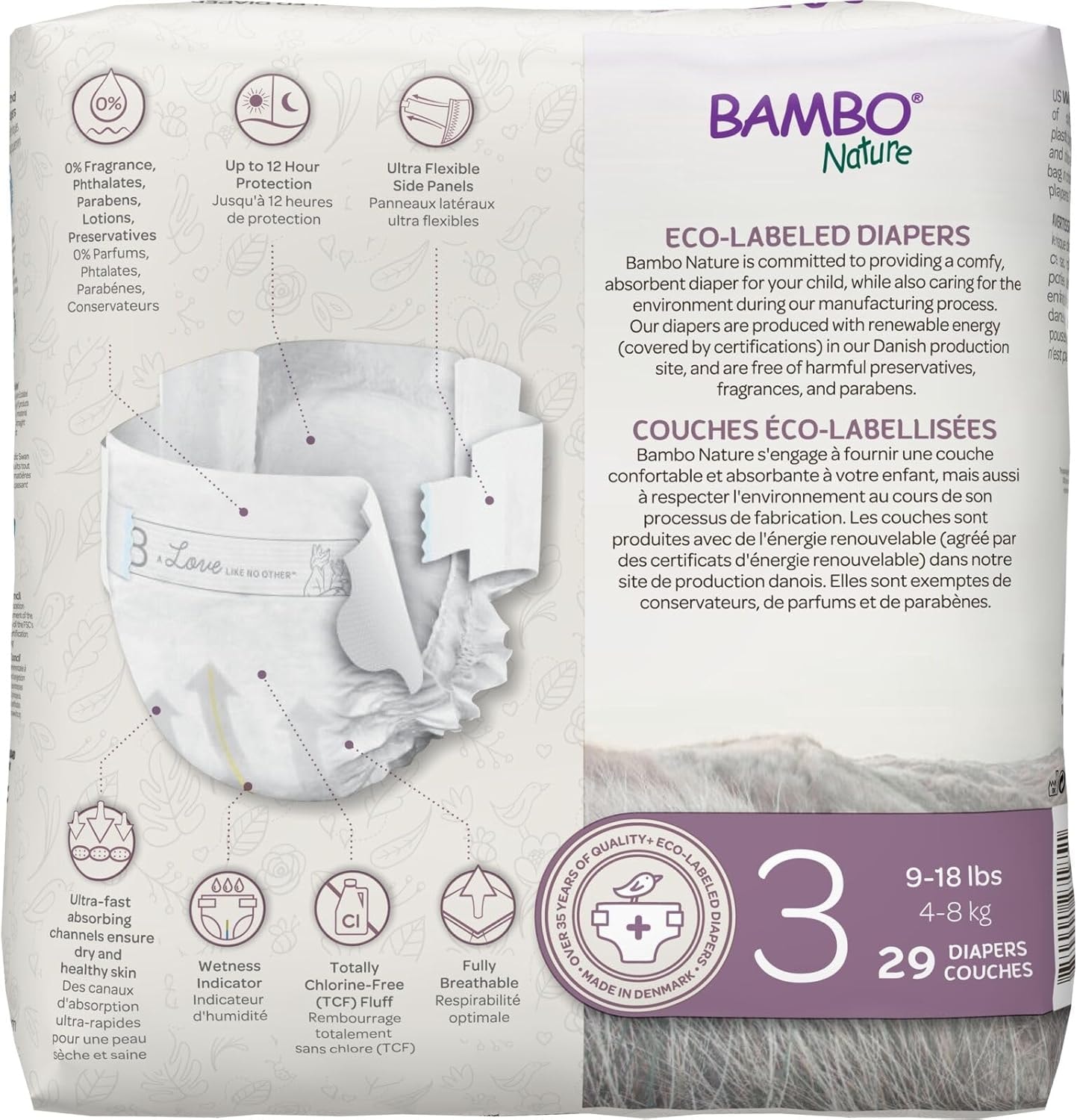
Bambo Nature** bambo nature diapers are made using renewable energy and bamboo pulp, however uncertain if entirely plastic free, label uncertain** Nappychat Diapers is another good hypoallergenic brand, when available.
Honest Brand, although well known and normally trusted unfortunately in the past has used Plastic (Polyethylene & Polypropylene and spandex) A shame because PLA (plant based layers) come from wood pulp of forests carefully managed. Honest has since improved at least some of their line.
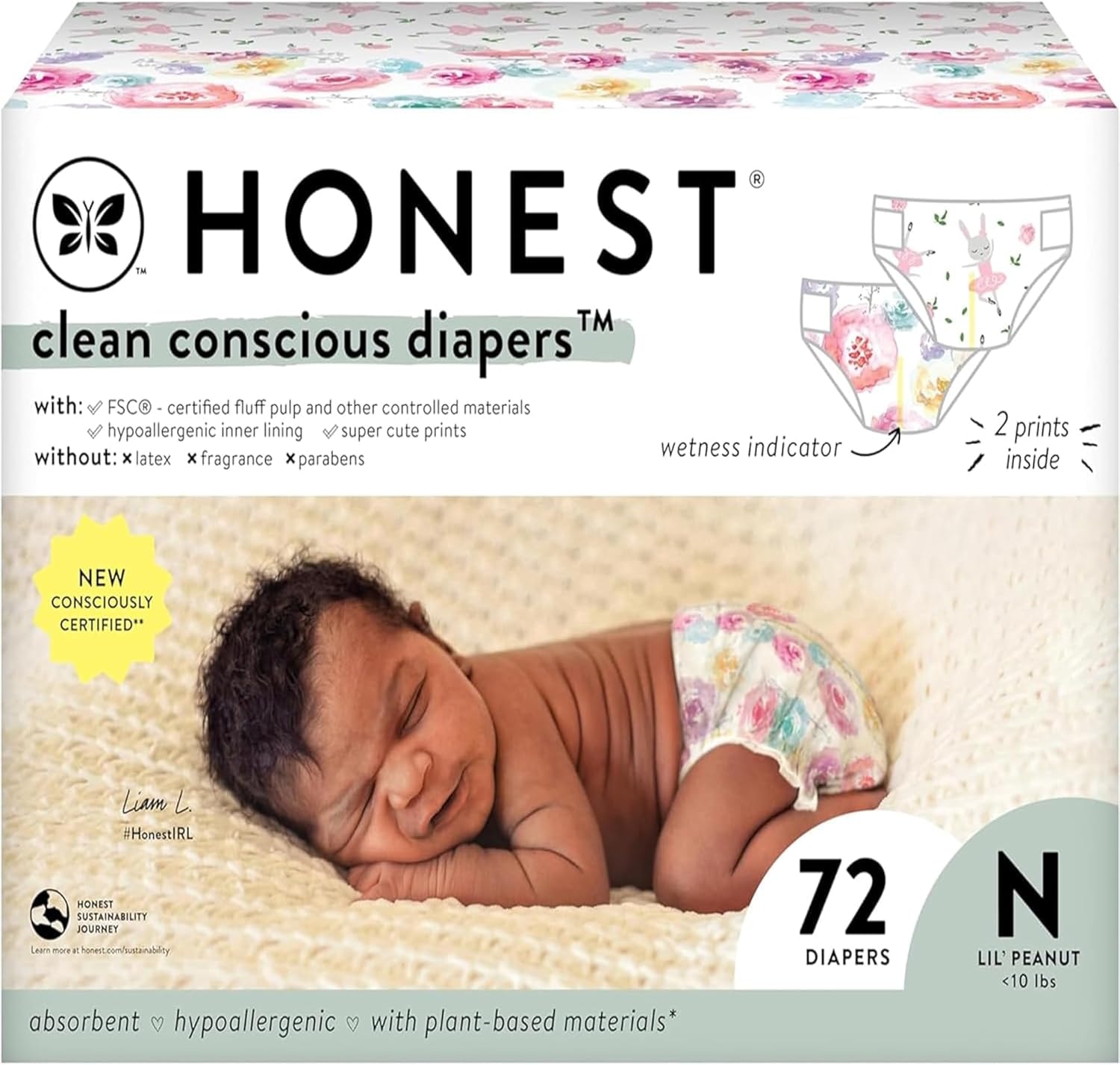
Honest Company** improved eco conscious baby diapers** honest diapers
As of this post Honest Brand, like others has come to realize that no plastic polymers are needed whatsoever in the making of disposable baby nappies. If it can’t biodegrade completely, leaving no microplastic trace, a brand should lose the label of eco-friendly.
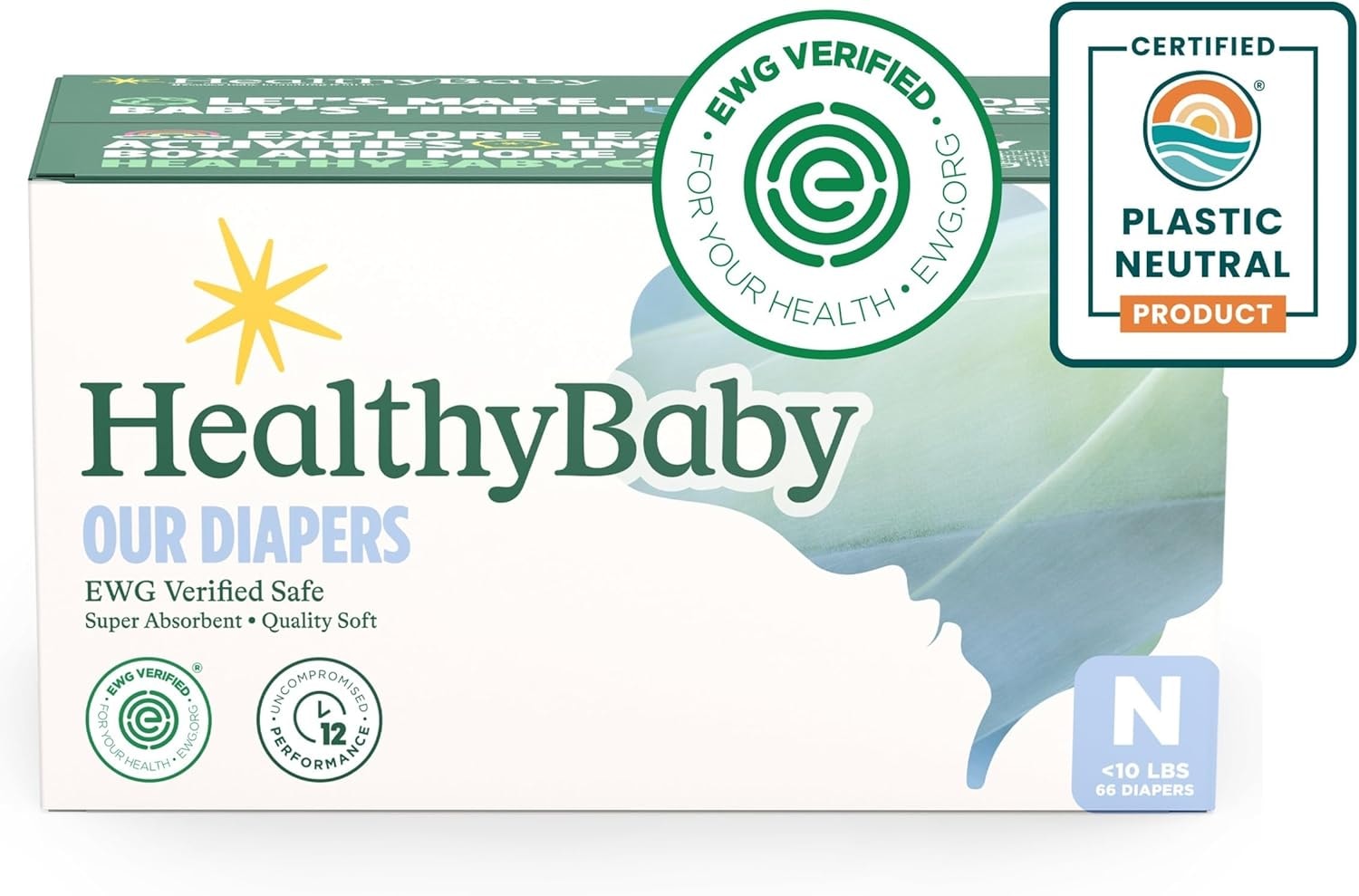
HealthyBaby. “plastic neutral” this brand states (anyone trying these please let me know) we can hope this means plastic free diapers
Biodegradable Disposable Diaper Liners:
Our choices here are many. Flushable liners are also an option for those seeking convenience and environmental benefits. No doubt easier to manufacture than an entire diaper, liners nonetheless account for considerable waste. Meant initially to be used in conjunction with cloth diapers, they are often useful additions to the new completely biodegradable disposable diaper. You know what to look for, no polyesters, polyethylenes, polypropylenes, latex polymers or other disguised plastics whatsoever. Some of the most notable biodegradable disposable baby diaper liners are:
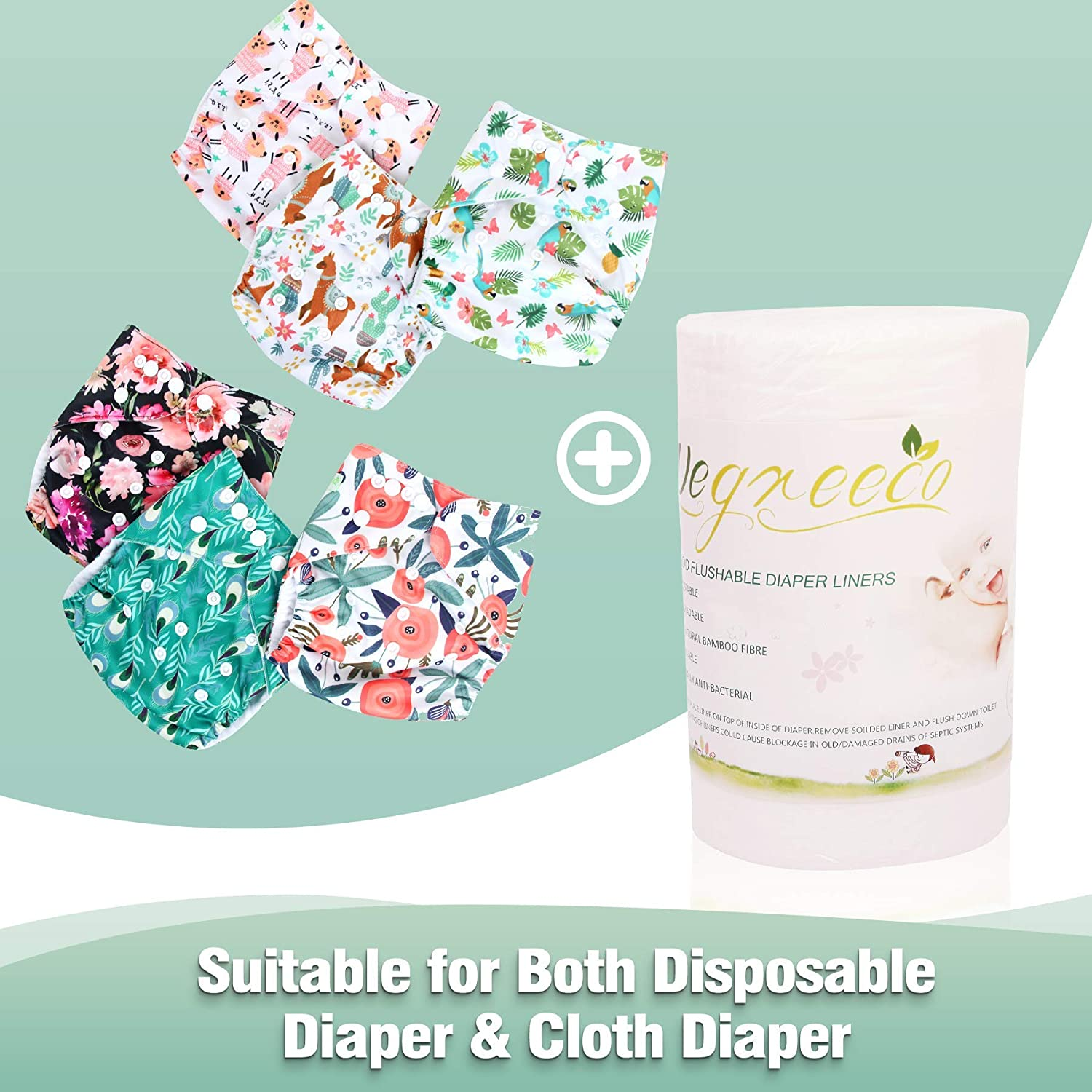
100% bamboo viscous, no chorine or other harsh chemicals. Easy to use, fun and flushable. Bluesnail** makes disposable rayon liners as does Bumkins bamboo with out toxic chemicals or plastics.**
Flushable along with fun patterns and colors. Completely free of chorine and other chemicals means less chance of diaper rash. The biodegradable materials that make up eco-friendly diapers makes them more breathable.
Outer Diaper Layers
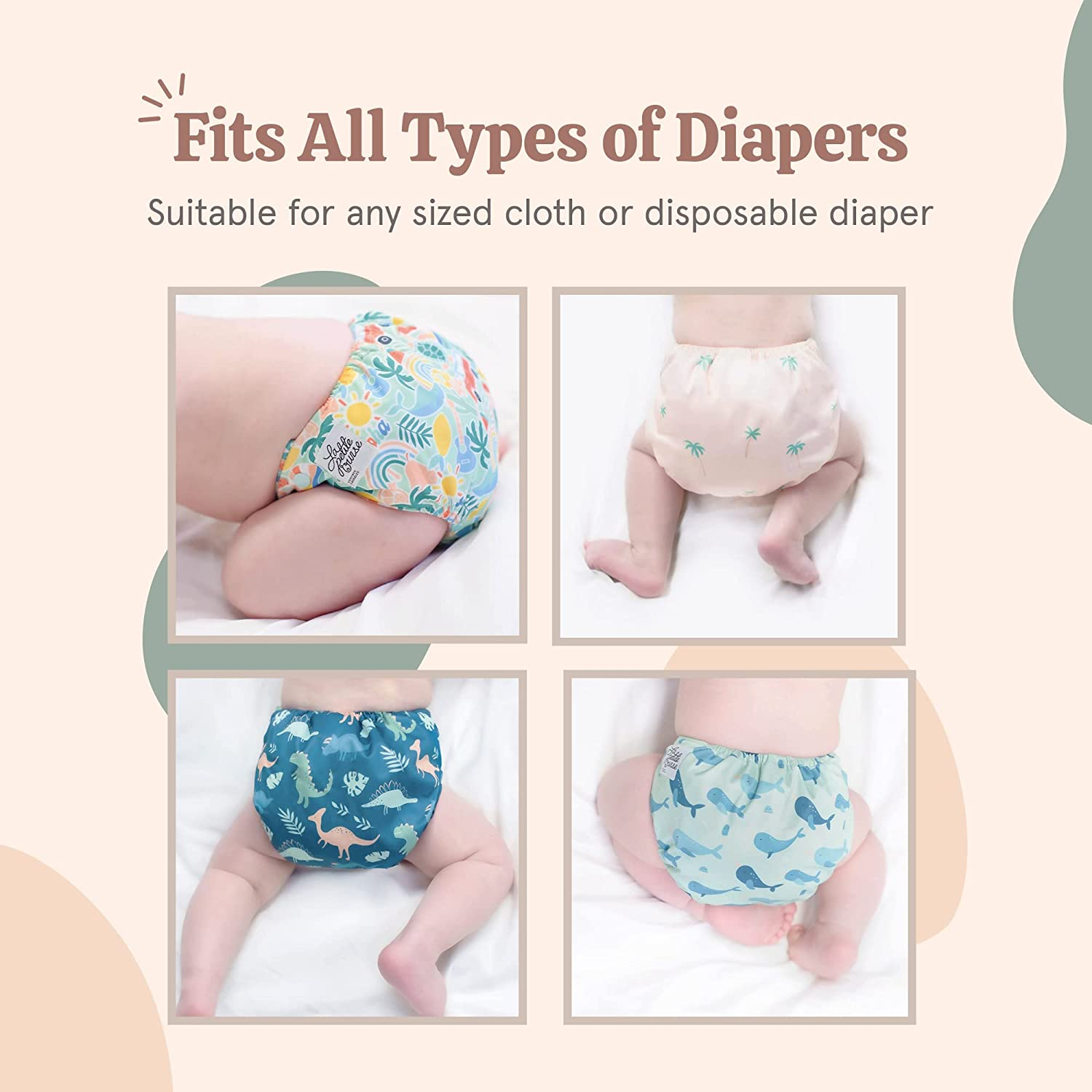
LaPetite Orse diaper liner rolls, to go with baby's Outer Layer, Ensembly makes theirs out of 100% recycled TPU (thermoplastic polyurethane) and while recycled materials are to be encouraged, always watch how you dispose of plastics, or recycle again if possible.
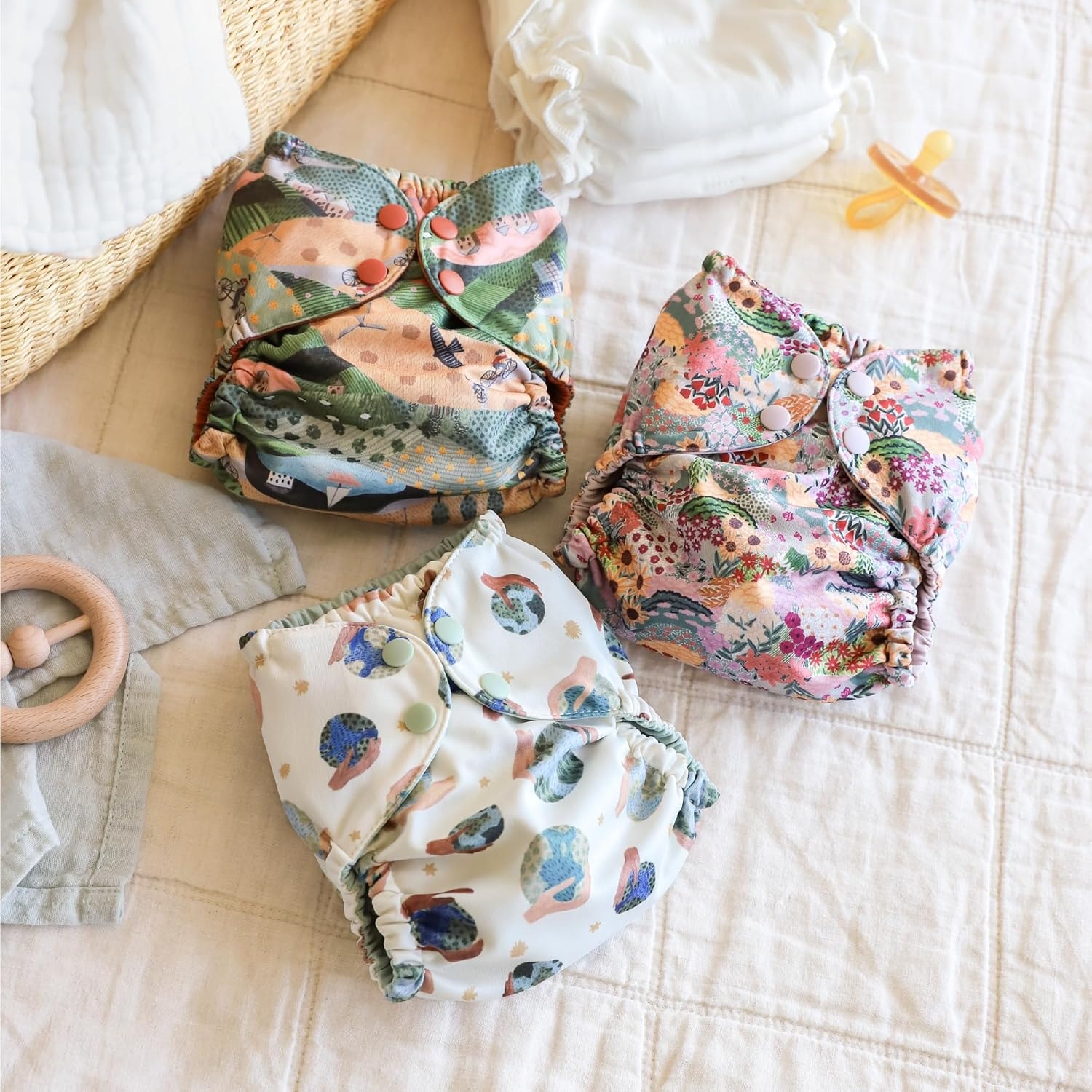
Ensemly Outer Layer Recycled TPU, compare with OSOCOZY 100% birdseye weave organic cotton, see if they don't work as well without the plastic
Sustainable diapers were a long time coming but finally here. And just as affordable as the traditional disposable diaper. Other natural bamboo, fragrance free, chorine free options or AlvaBaby and Naturally Natures.
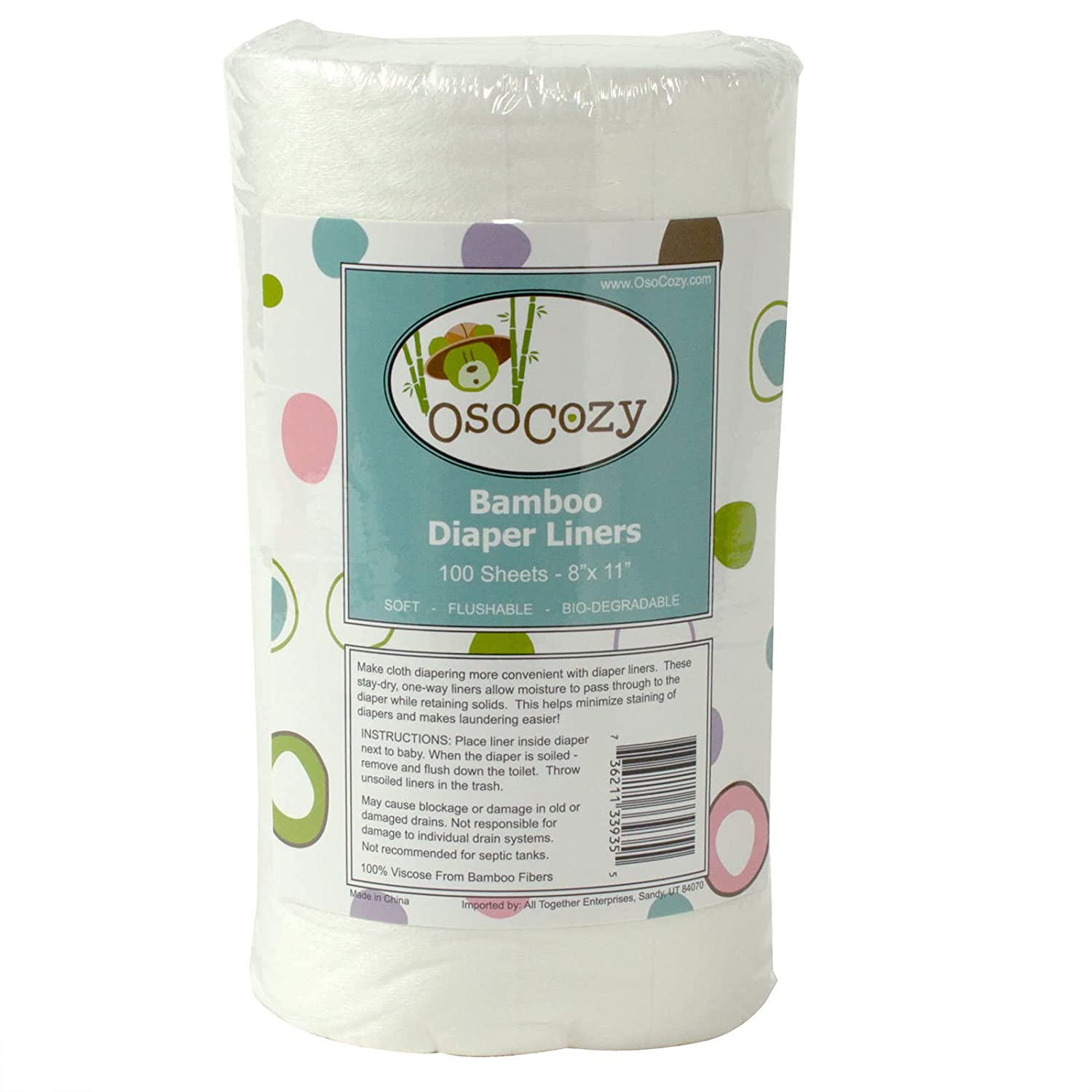
Not to forget Osocosy flushable liners. Your choices when it comes to biodegradable baby liners are indeed many and growing, as we hope the biodegradable diaper market will. The wave of the future in our quest for a planet free from its choking plastic waste. Every day it gets better, with a hope to soon update this Amazon list for more biodegradable diaper brands.
Best Biodegradable Baby Wipes
Of course it won’t do to clean your baby’s bum with nothing but the best, so consider these all natural, non plastic completely biodegradable baby bum wipes, one from another small business in New Zealand. Made with the very best ingredients for those very sensitive baby areas, and they come in biodegradable packaging.

Go Wipes as well as Water Wipes** while plastic free wipes themselves, the packaging material remains in question, kind of defeats the compostable claim, the problem with TOO MANY "eco friendly" brand claims**
Terra Brand Bamboo Baby Wipes** unscented and are 100% biodegradable including packaging - Dry Wipes**
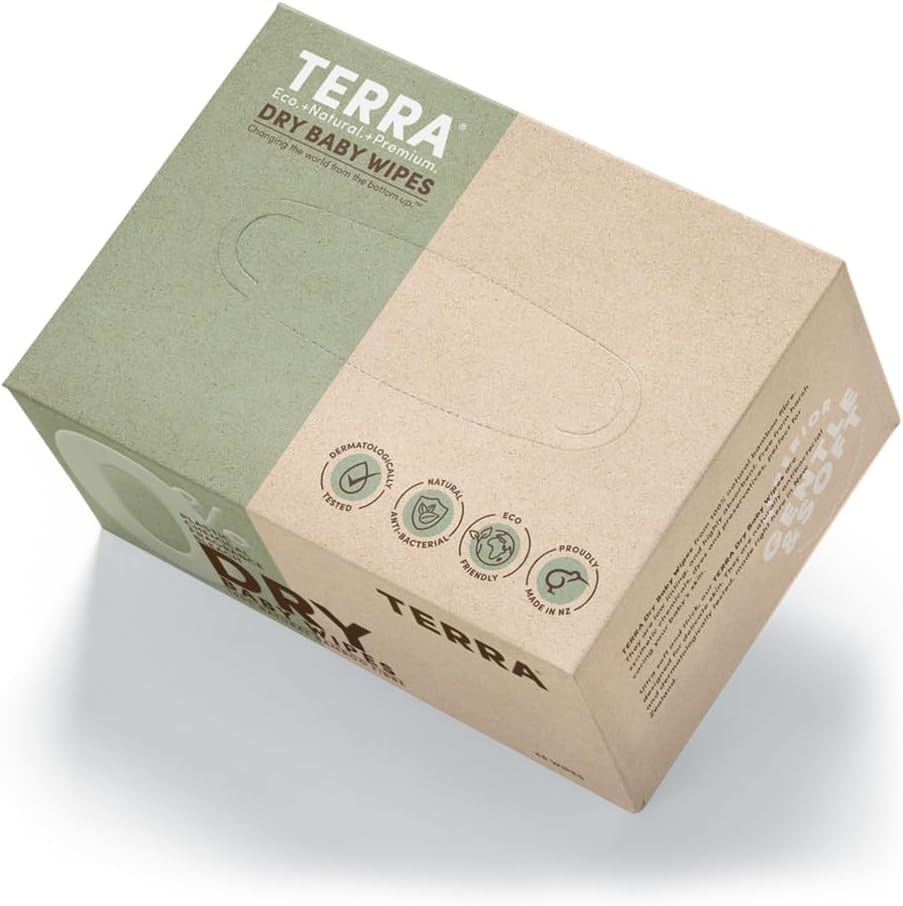
Terra also makes Manuka Honey Baby Wipes zero plastic however the outer packaging may not be, Terra Dry Wipes are the only, packaging included, that are 100% plastic free
Mum and You** (as of this post, currently out of stock but an excellent brand, registered plastic free, compostable Vegan in recycled packaging.** An excellent choice, referred to as water wipes, made up of over 90% water, better in helping to prevent the dreaded diaper rash.
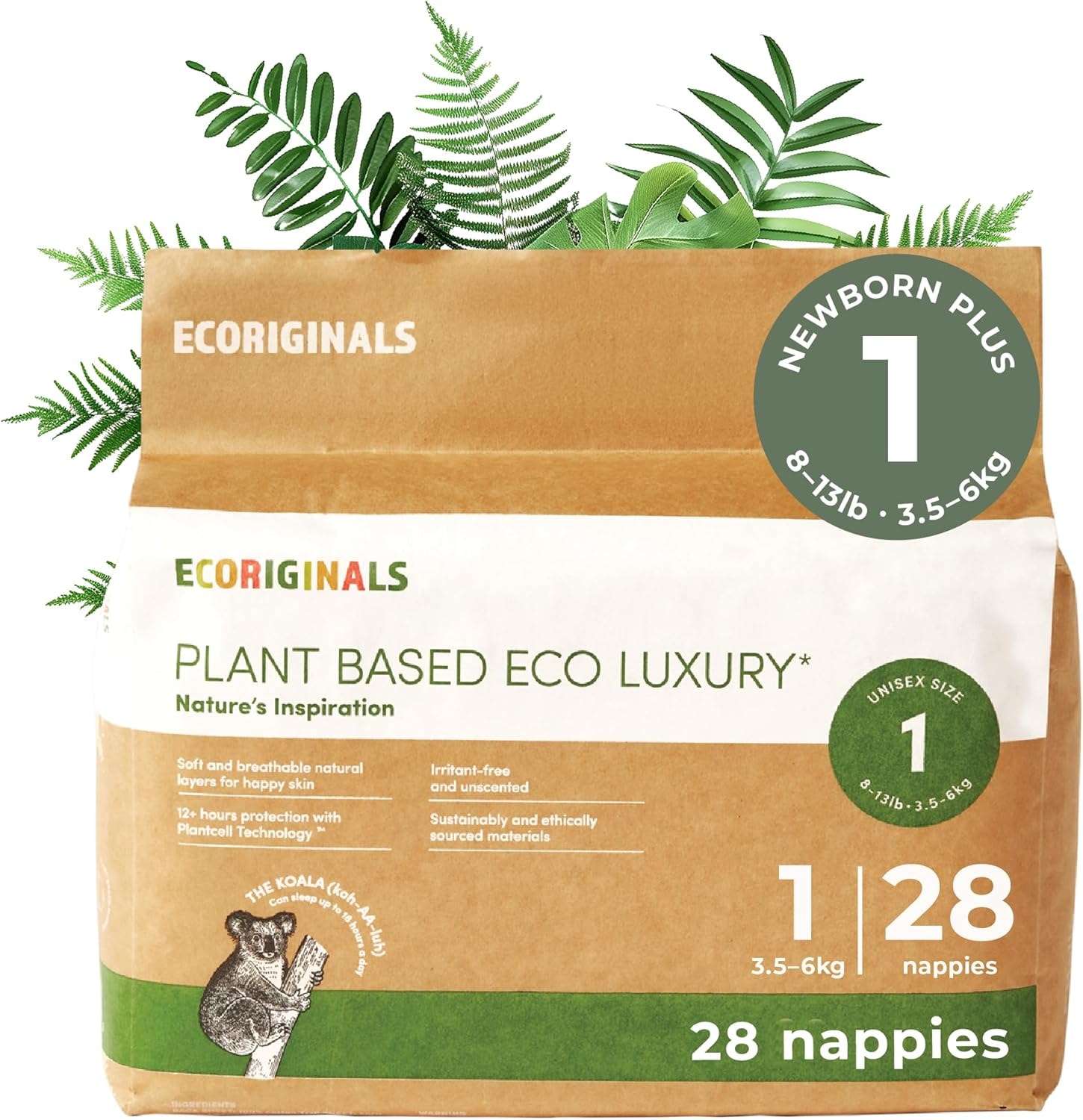
Ecoriginals** 100% plant based materials** bamboo top sheet
Cloth Diapers
Of course, reusable cloth diapers will biodegrade, after many washings, in the end finding its way to the rubbish bin. By using cloth diapers made from organic materials, we can ensure a more sustainable and eco-friendly option. But our busy, single use world, we can do a better job of making sure the eco-friendly disposable diapers we buy today return entirely to the biomass, instead of accumulating in landfills along with those still with us from the 1930s.
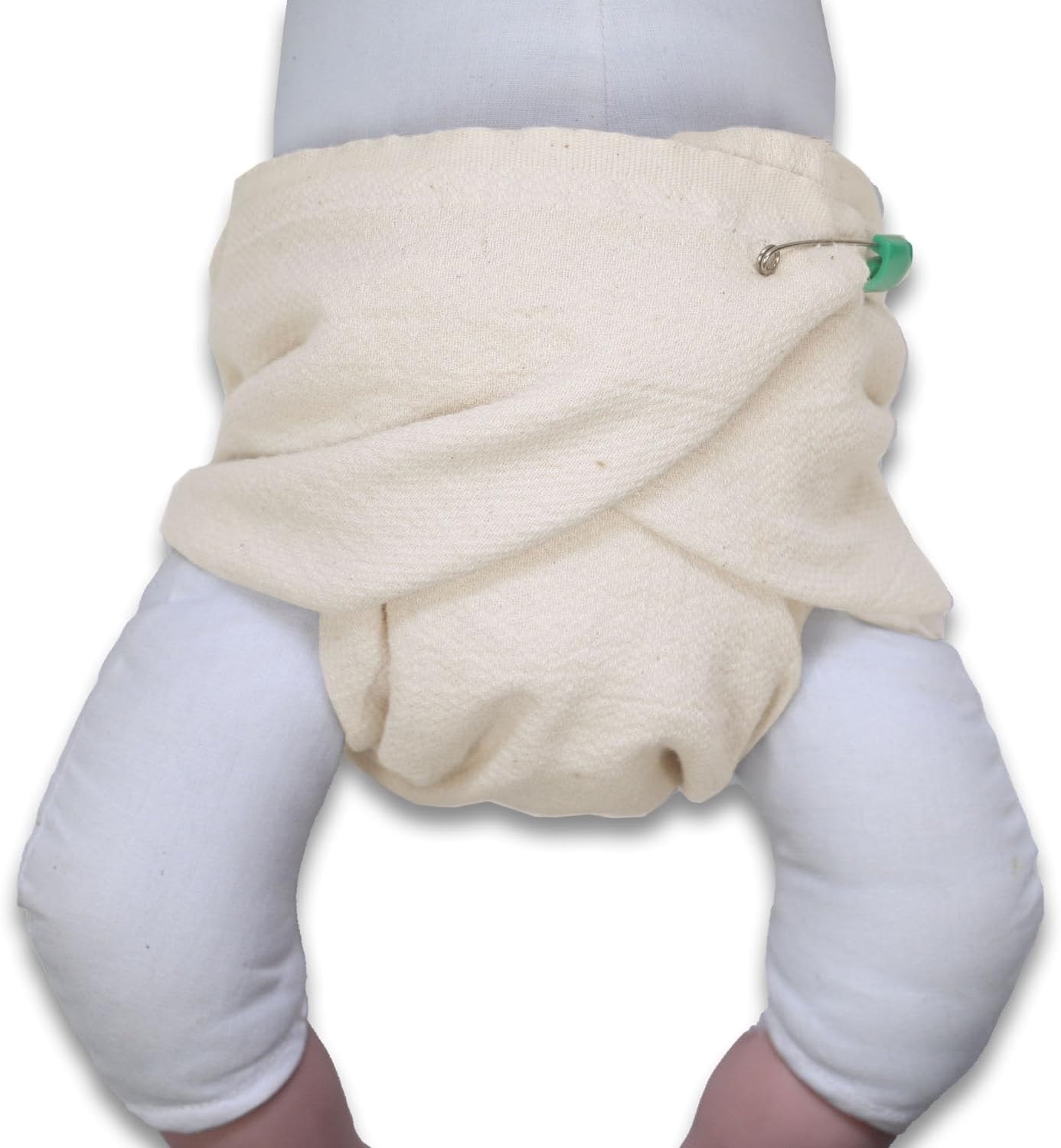
OSCOZY. 100% cotton flat square old fashioned washable diapers, sold by the dozen (yep, this is what I used, back in the day when there WERE no eco disposable nappies to be found - even then I hated plastics)
No matter which choice you go with, make it a environmentally friendly improvement over traditional non-biodegradable options out there today. Within a generation, we can change the world we live in to a model of zero waste. Our baby’s bum will be the better for it, as will the planet they will grow up to inherit. By making biodegradable choices whenever possible, and with all these great options available it’s never been easier (or cuter!) to make environmentally conscious decisions when it comes to diapering our little ones!
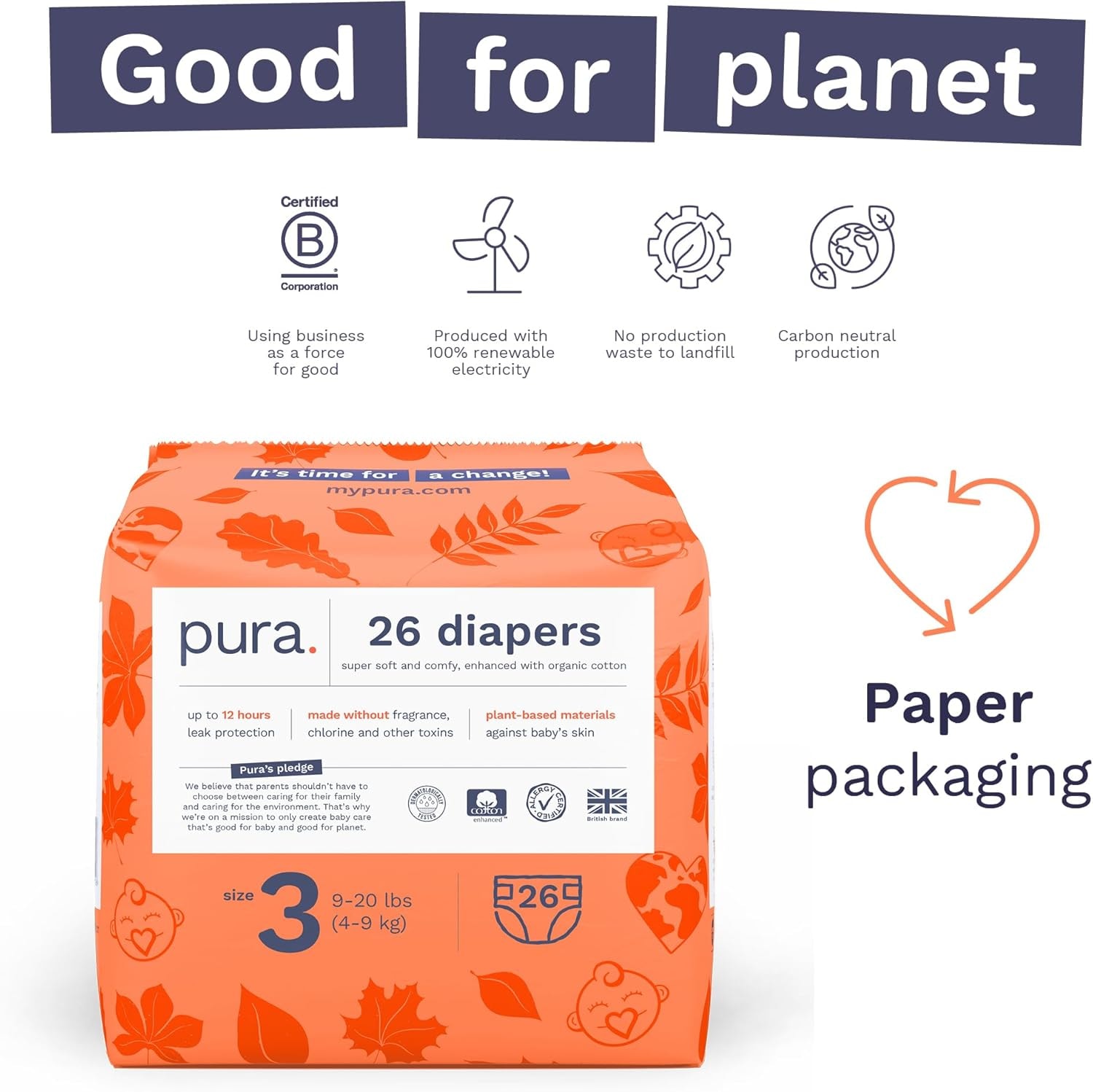
PURA sustainable organic cotton
Choosing the Right Eco-Friendly Diaper
With the growing awareness of the environmental impact of traditional disposable diapers, many parents are turning to eco-friendly alternatives. However, with so many options available, it can be overwhelming to choose the right one. Here are some factors to consider when selecting an eco-friendly diaper:
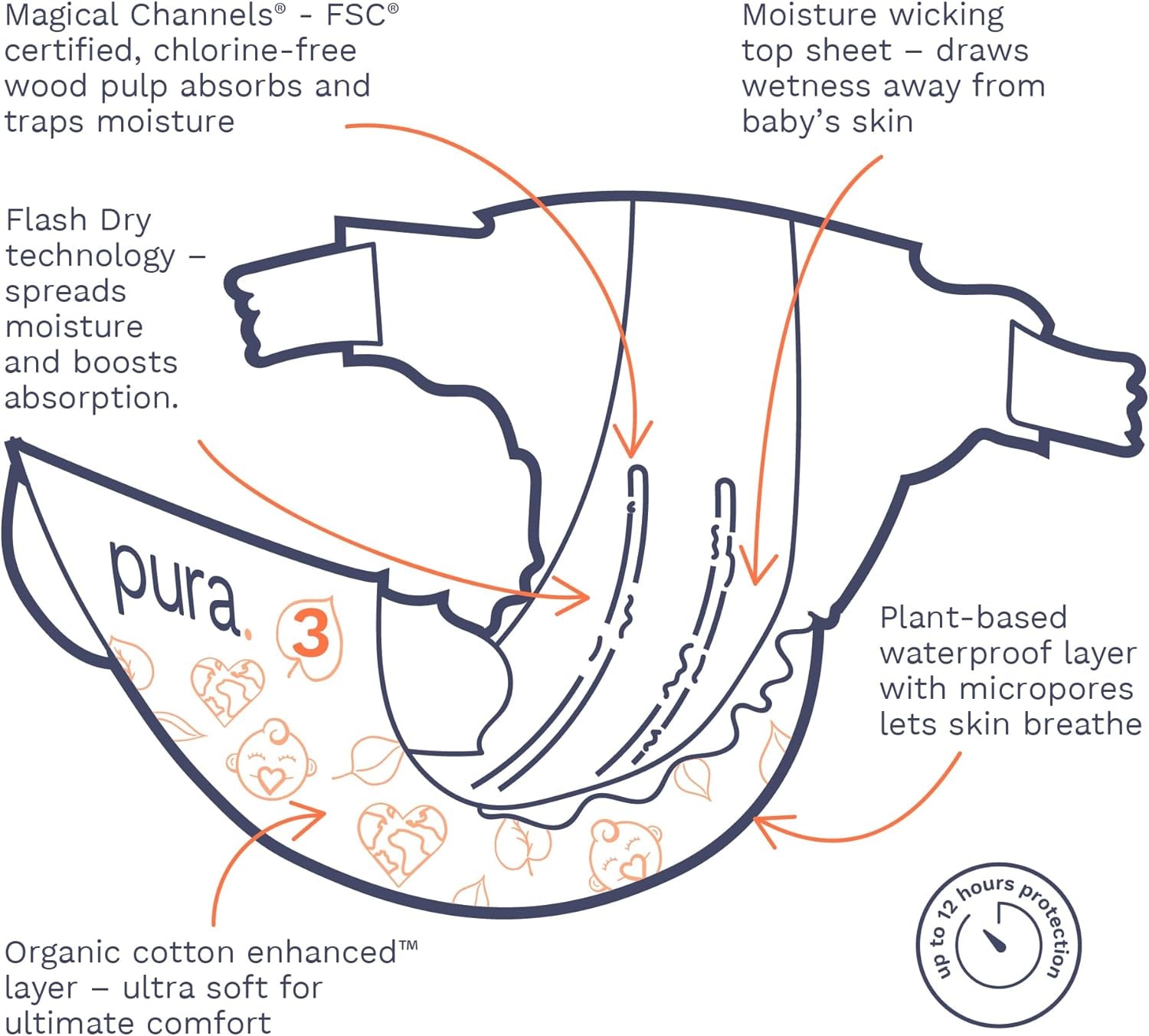
PURA eco friendly diapers, biodegradable materials
- Materials: Look for diapers made from sustainable materials such as bamboo, organic cotton, and biodegradable plastics. These materials are not only better for the environment but also gentler on your baby’s skin.
- Biodegradability: Consider diapers that are biodegradable or compostable, reducing the amount of waste sent to landfills. Brands like Dyper and Eco Boom offer excellent biodegradable options.
- Chemicals: Opt for diapers that are free from harsh chemicals, fragrances, and dyes, which can irritate a baby’s skin and harm the environment. Brands like Believe and Earth Eden are known for their hypoallergenic and totally chlorine-free diapers.
- Fit and Comfort: Choose a diaper that fits your baby comfortably, reducing the risk of leaks and skin irritation. A well-fitting diaper ensures your baby stays dry and happy.
Price: Eco-friendly diapers may be more expensive than traditional disposable diapers, but consider the long-term benefits to the environment and your baby’s health. Investing in sustainable diapers is an investment in a healthier future.
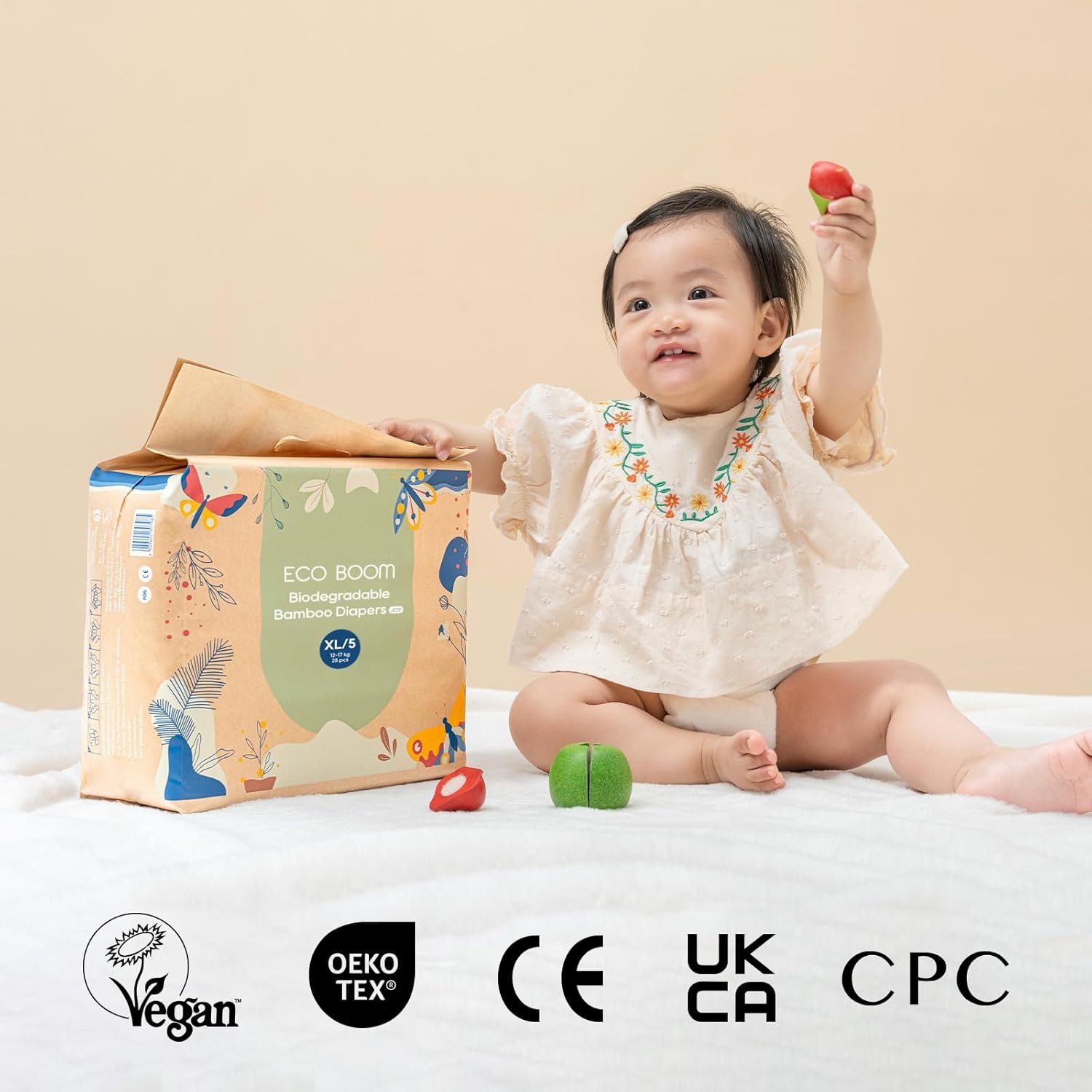
Eco Boom earth friendly disposable diapers, biodegradable materials
By considering these factors, you can make an informed decision and choose the best eco-friendly diaper for your baby.
Disposing of Eco-Friendly Diapers
While eco-friendly diapers are a more sustainable option, it’s essential to dispose of them properly to minimize their environmental impact. Here are some tips for disposing of eco-friendly diapers:
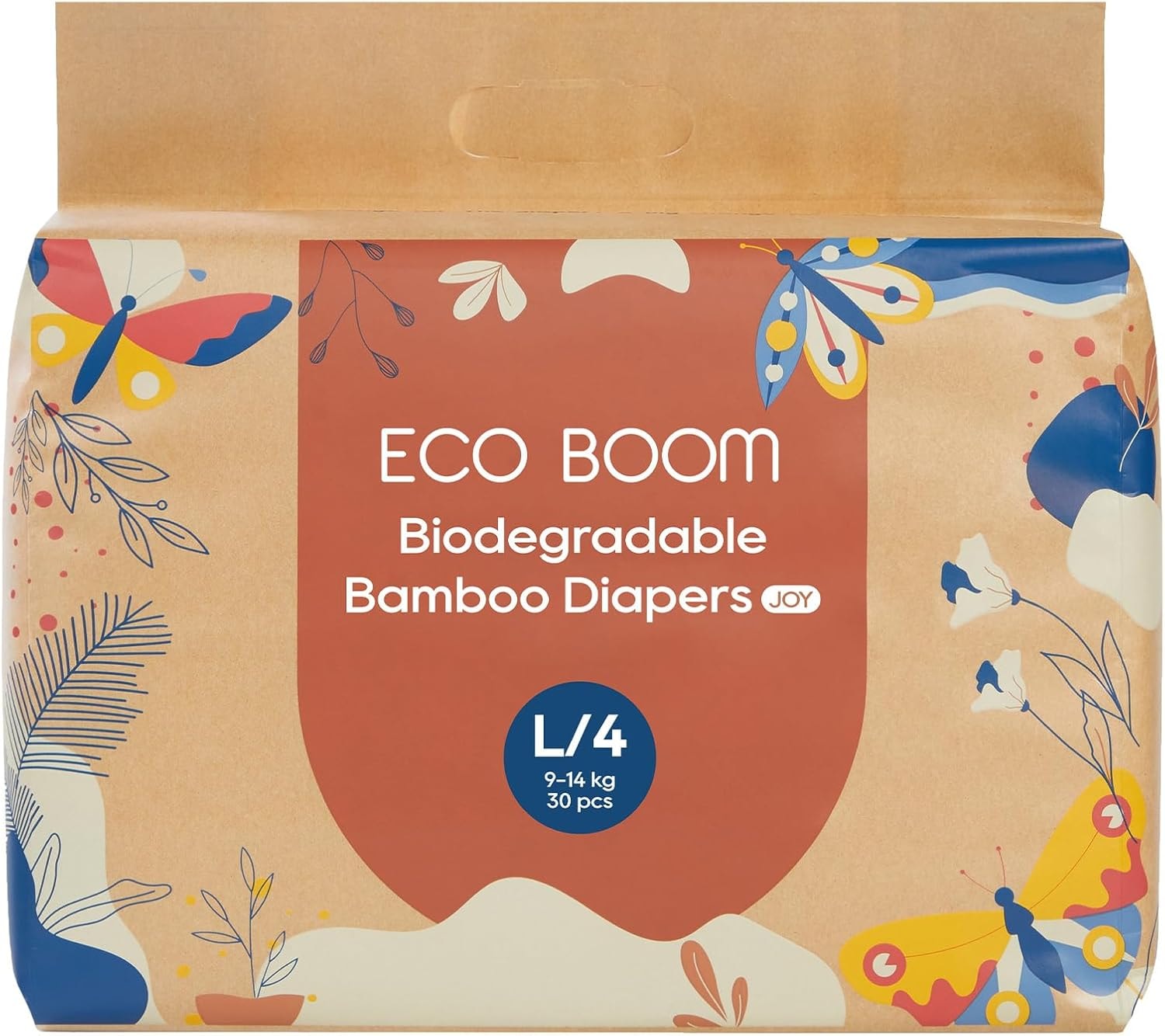
Eco Boom. one of the best bamboo diapers, biodegradable materials
- Check the Manufacturer’s Instructions: Some eco-friendly diapers may require special disposal methods, such as composting or recycling. Always follow the guidelines provided by the manufacturer.
- Compost: If possible, compost eco-friendly diapers to reduce waste and create nutrient-rich soil. This is a great way to return the materials to the earth.
- Recycle: Some eco-friendly diapers may be recyclable, reducing the amount of waste sent to landfills. Check with your local recycling program to see if they accept these materials.
Properly Dispose of Non-Biodegradable Parts: If your eco-friendly diaper has non-biodegradable parts, such as elastic or adhesive, make sure to dispose of them properly to prevent environmental harm. Some brands today make use of new Sustainable Alternative Elastic which is plant instead of petrol based.
Compostable Bags For Compostable Diapers
Unlike conventional diapers you can put a compostable dirty diaper into a compostable waste bag, a biodegradable bag, and your most sustainable diapers will disappear into the earth without a trace. No toxic plastic left behind.
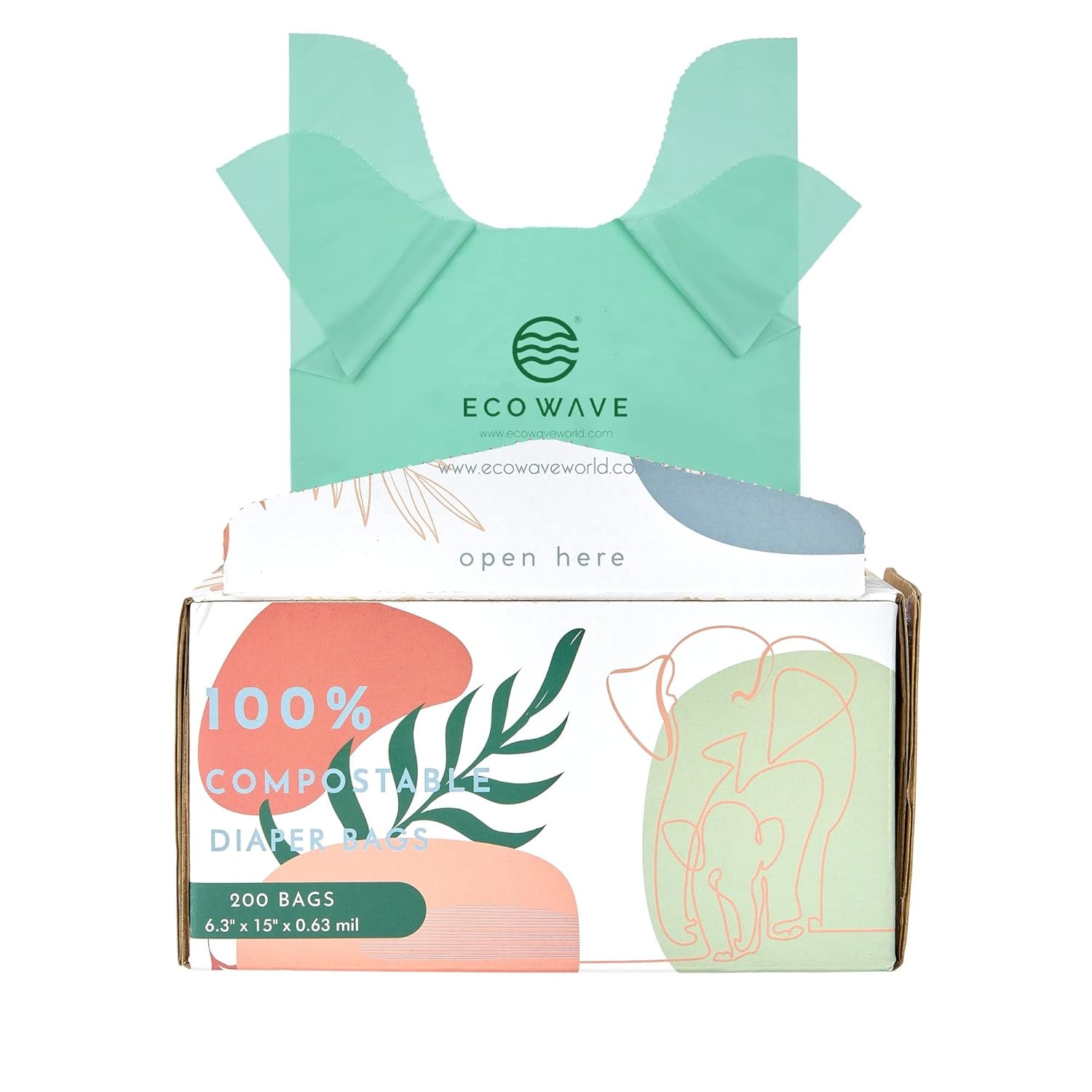
Eco Wave. compostable diaper bags
By choosing the right eco-friendly diaper and disposing of it properly, you can reduce your environmental footprint and create a healthier environment for your baby to thrive.
For Adult Incontinence Products Go Here

FAQs
Why are plastic disposable diapers a problem?
Well, think about this—each diaper your baby wears today could outlive you. These little poop-trappers take over 500 years to break down in landfills. They’re like the unwanted guests of the waste world that simply refuse to leave. Plus, they’re made with plastic and chemical treatments that aren’t exactly eco-friendly.
How much waste are we really talking about?
A lot. Each year, an estimated 18 billion disposable diapers are tossed into landfills in the U.S. alone! That’s enough to power a poop-fueled colony on the moon (if only). This staggering pile contributes to about 3.5 million tons of waste, most of which sits in landfills for centuries.
Do diapers really contain hazardous materials?
Yes! When diapers decompose in landfills, they can release methane gas—a potent greenhouse gas that rivals carbon dioxide in its planetary villainy. They also contain untreated human waste, which can seep into soil and water systems, potentially spreading diseases and contaminants.
Can regular plastic diapers be recycled?
Technically possible but the problem comes with separating absorbent hygiene products from the rest of the waste. Such a project is often cost prohibitive.
Can't plastic diapers just be burned?
Not a good idea in an uncontrolled environment. Disposable plastic diapers, when incinerated, produce unusual and uniquely toxic emission products.
Can biodegradable diapers be composted?
Yes they can! Not only can this material be turned to soil under proper sterilizing temperatures, but also any organic waste can be used in biogasification and energy production!
For more in formation:
